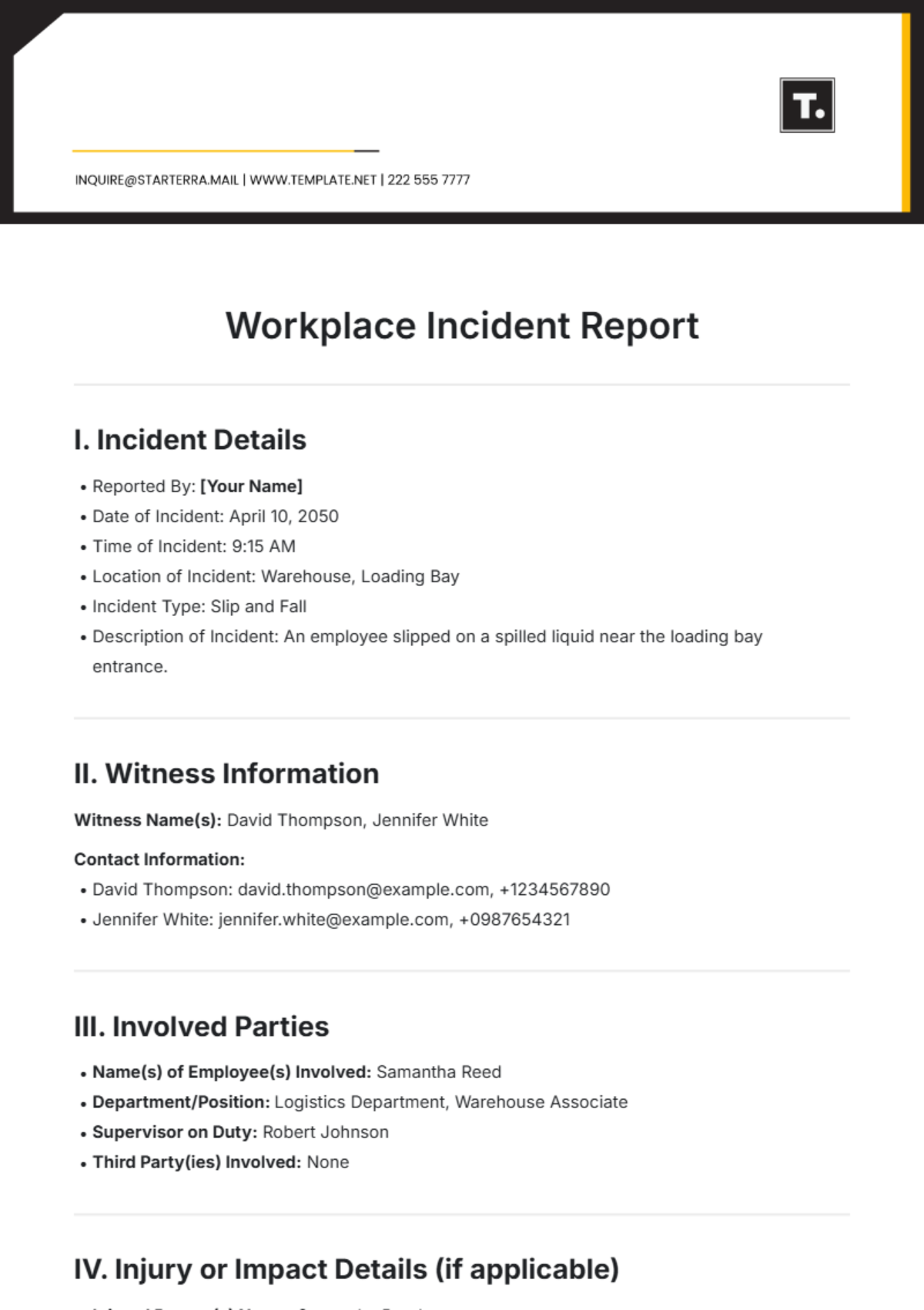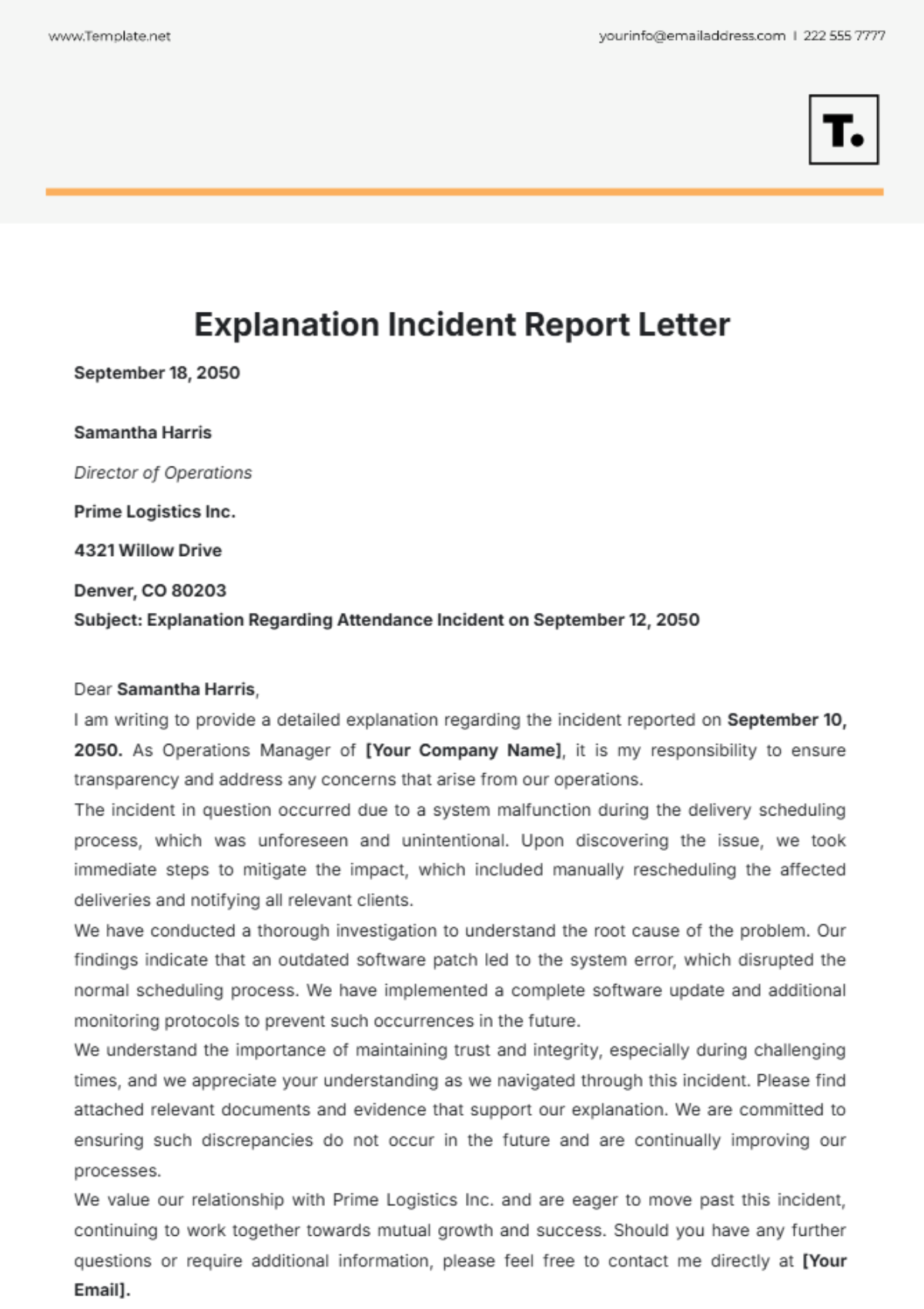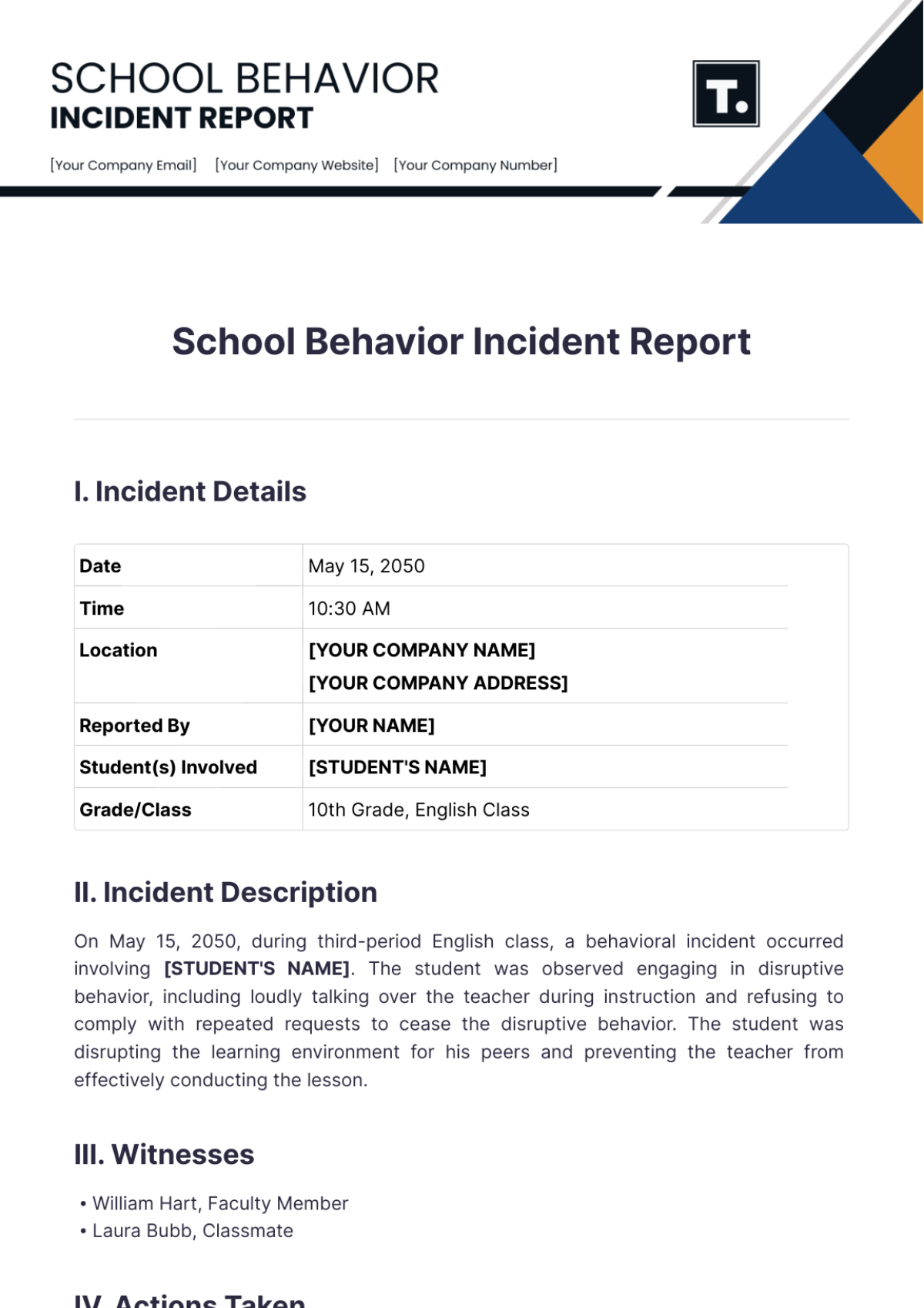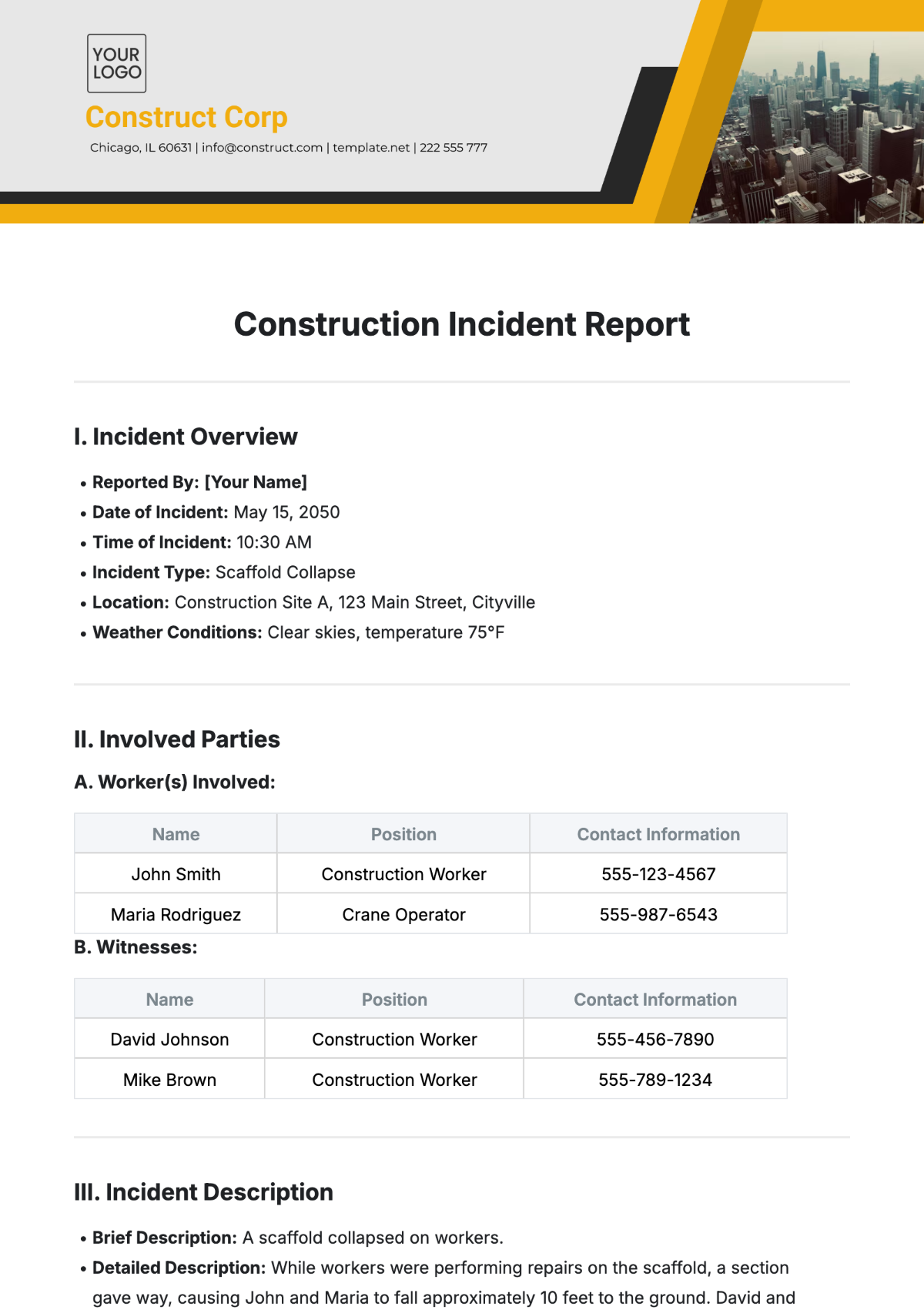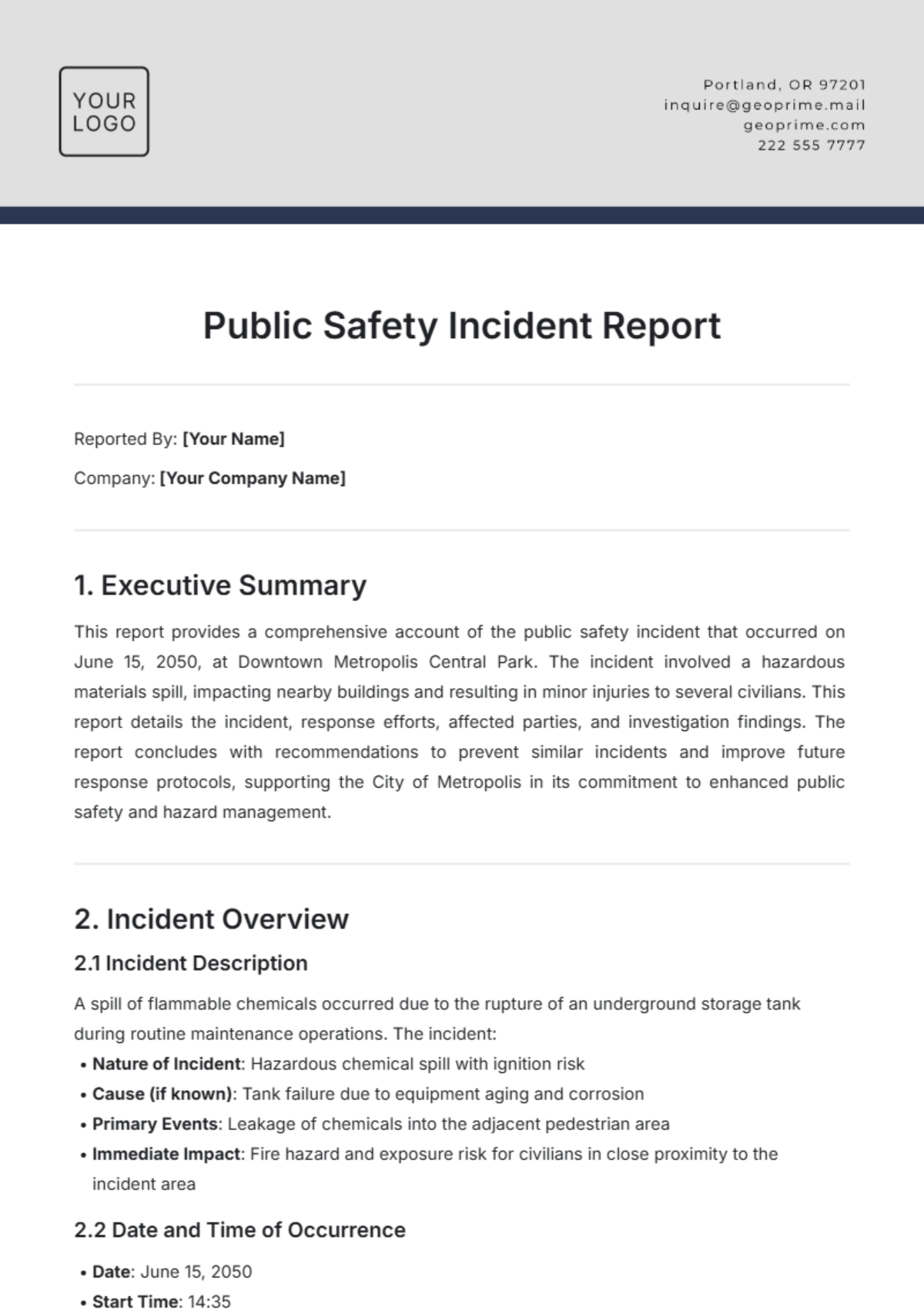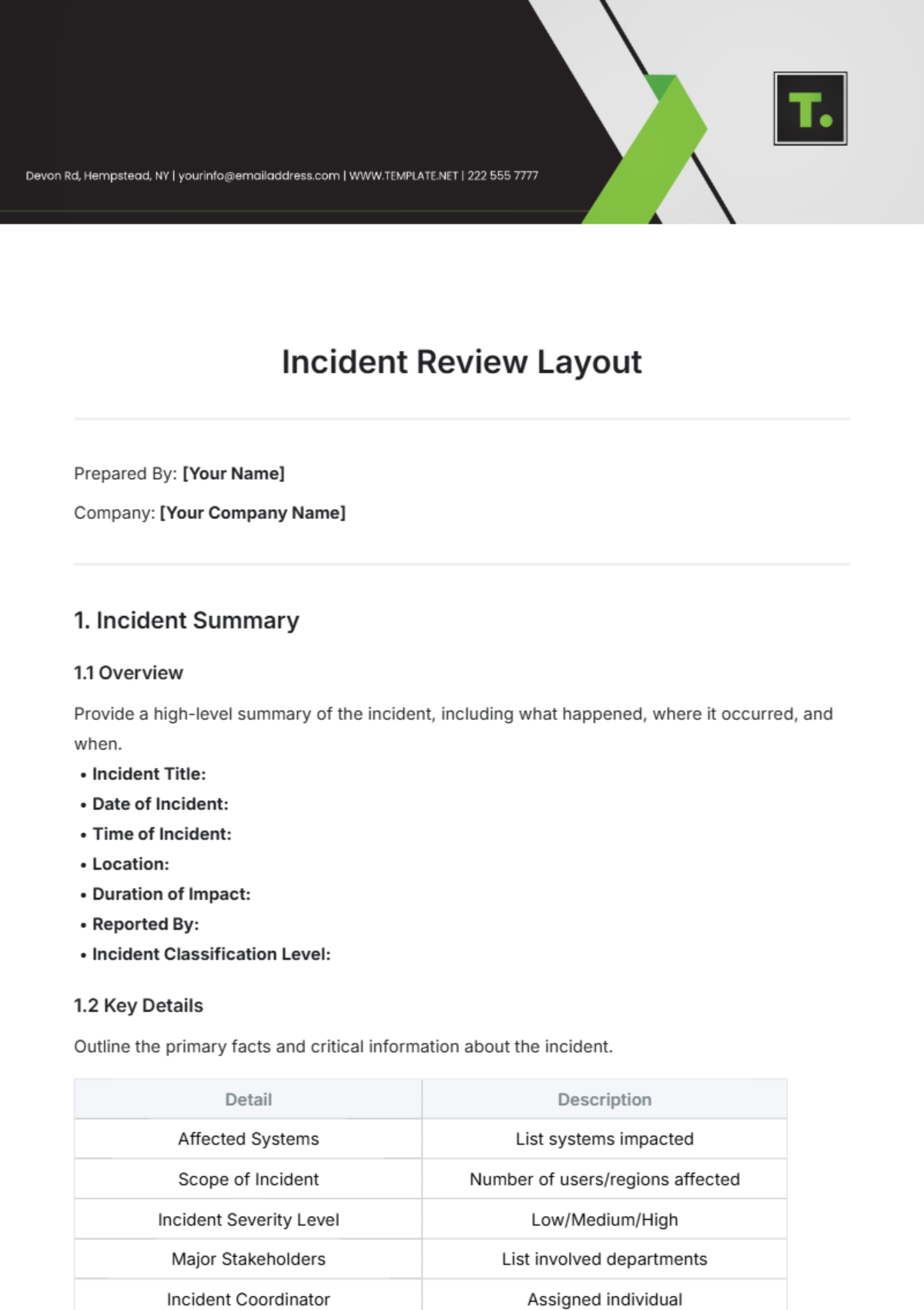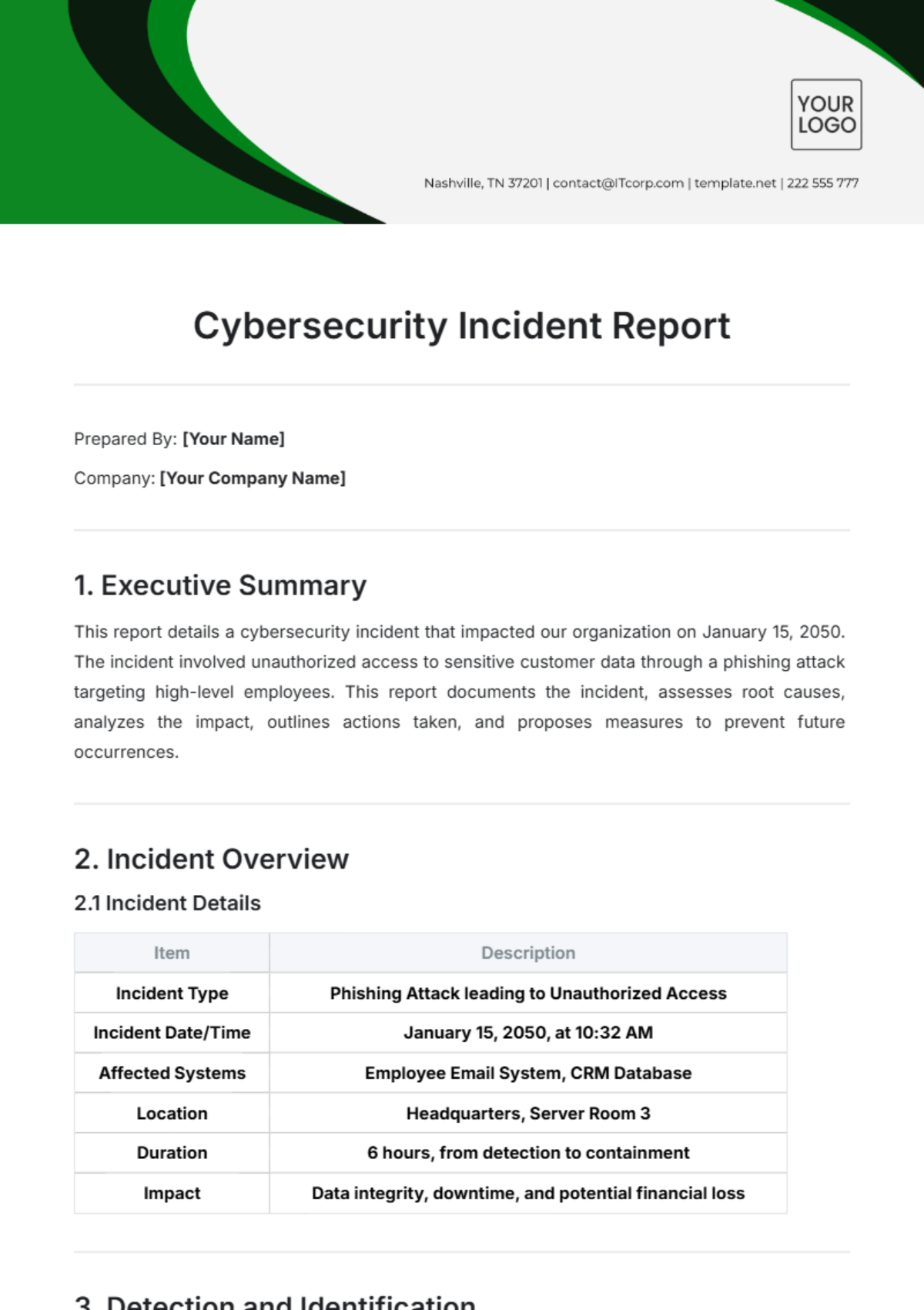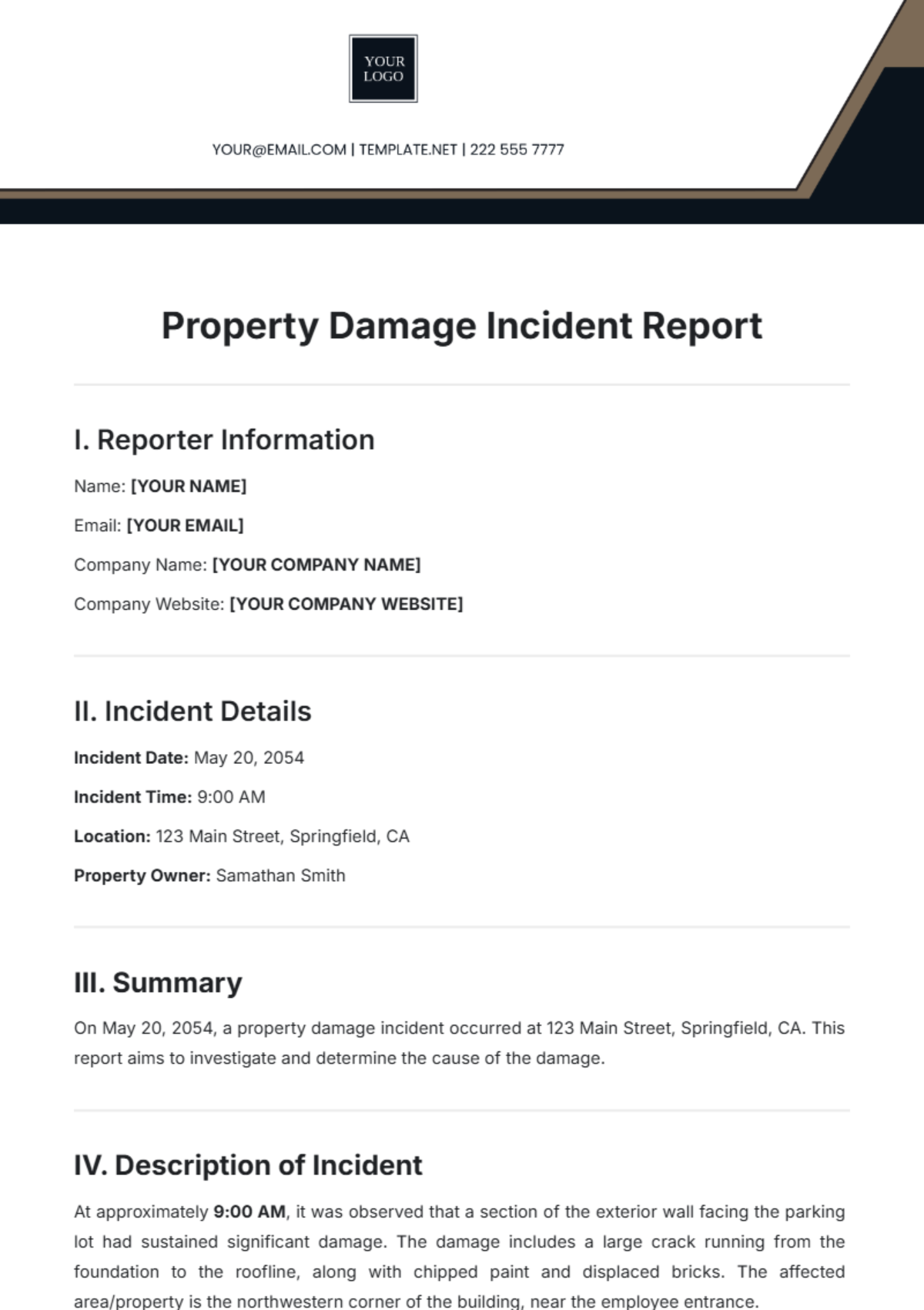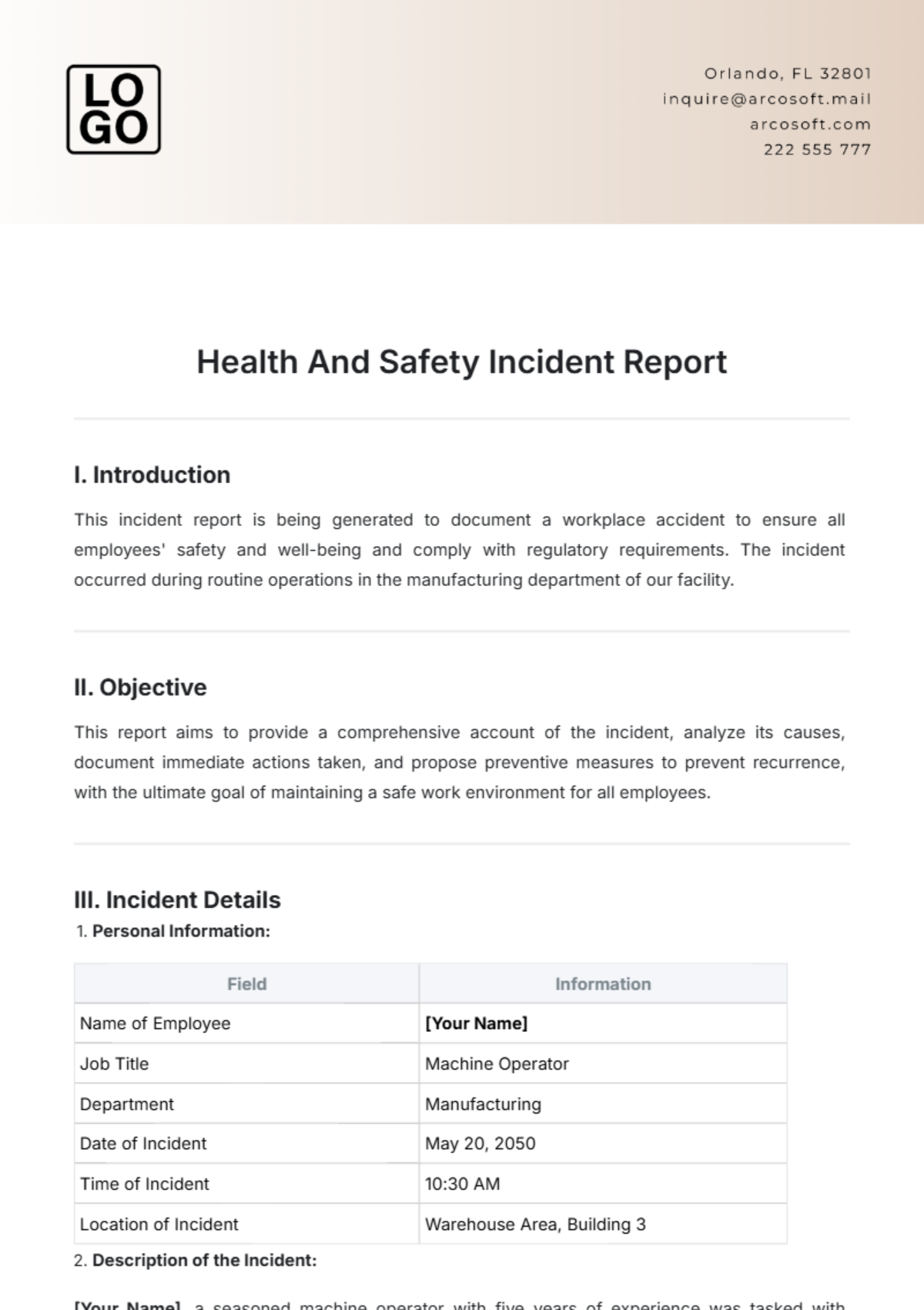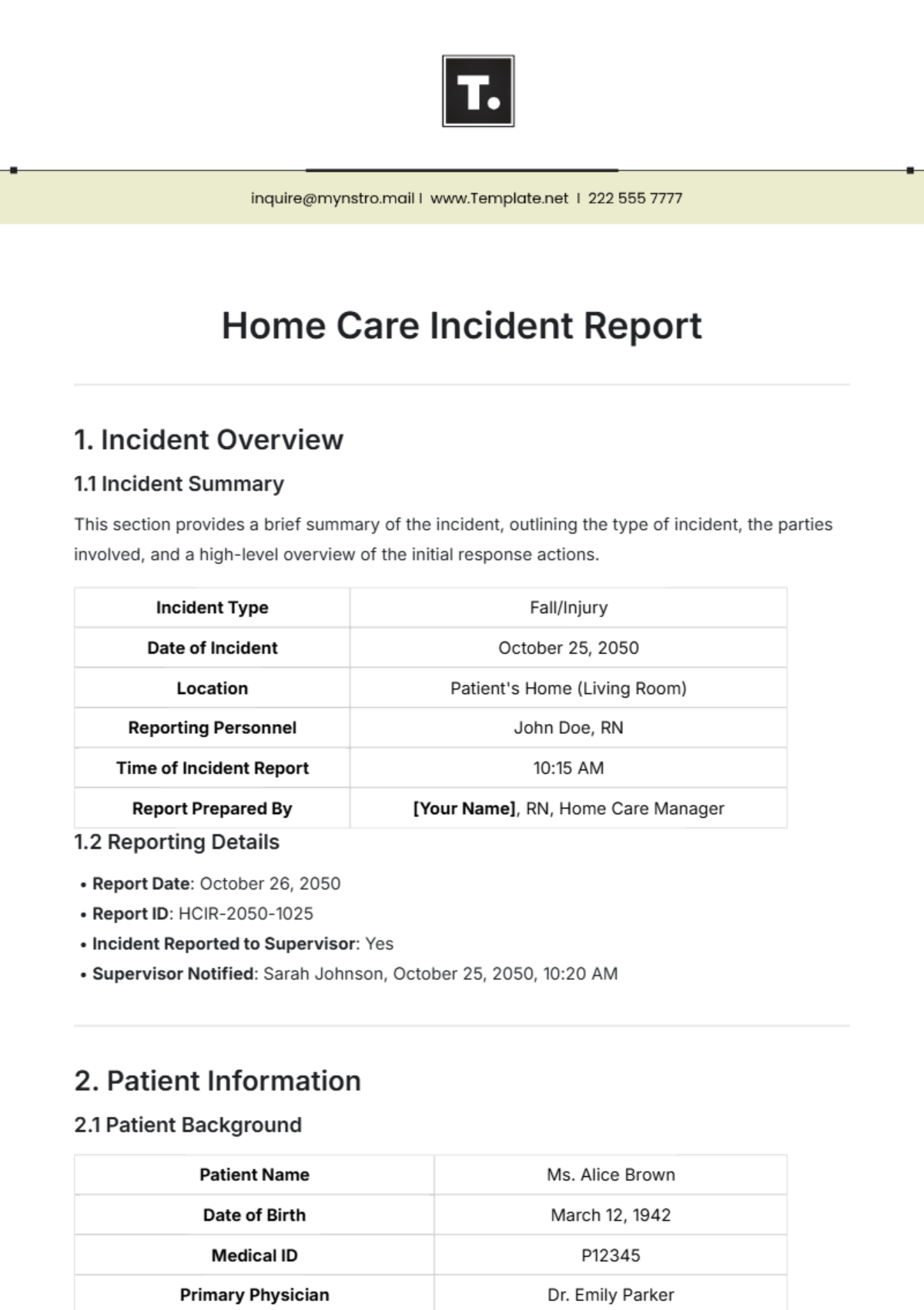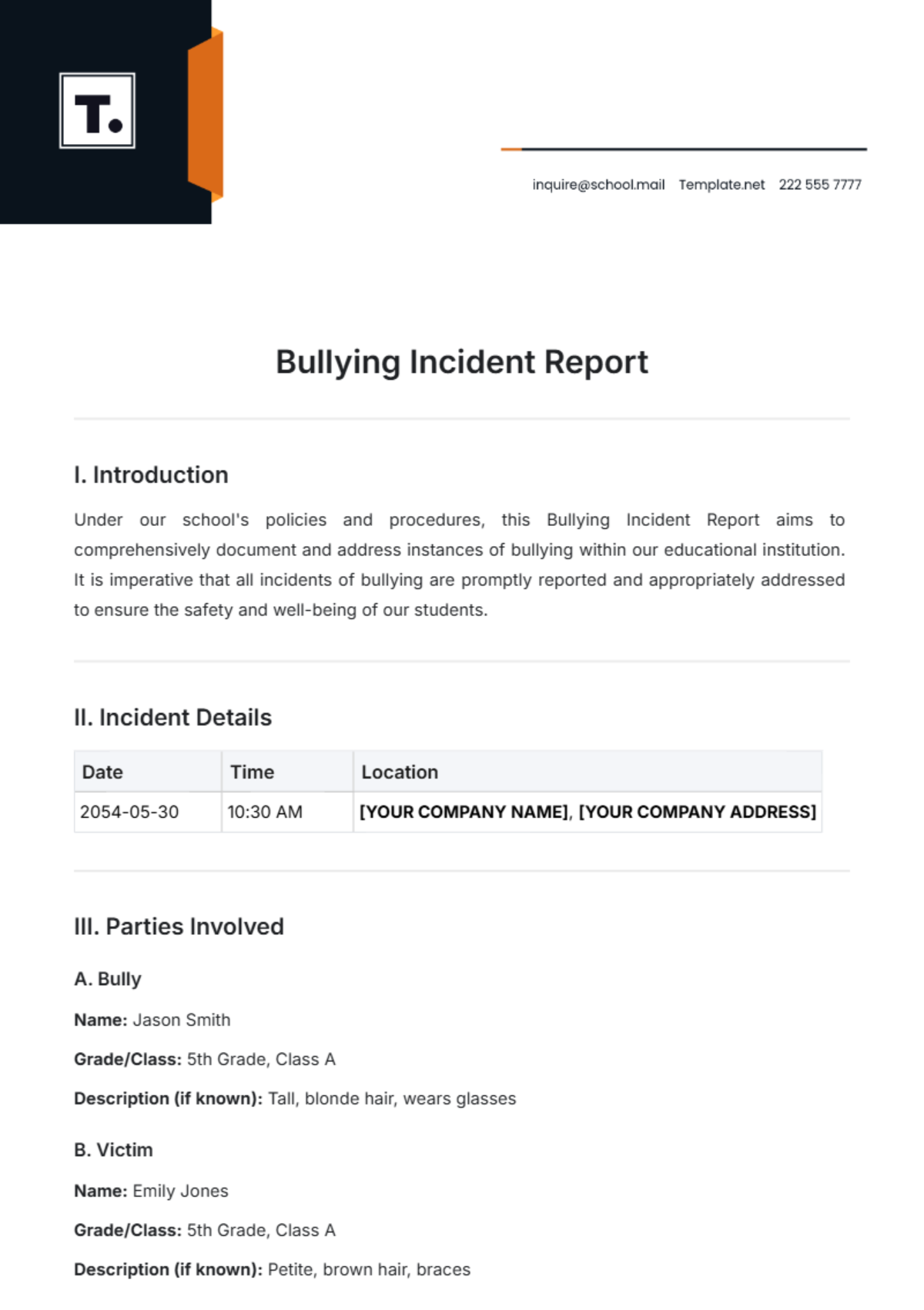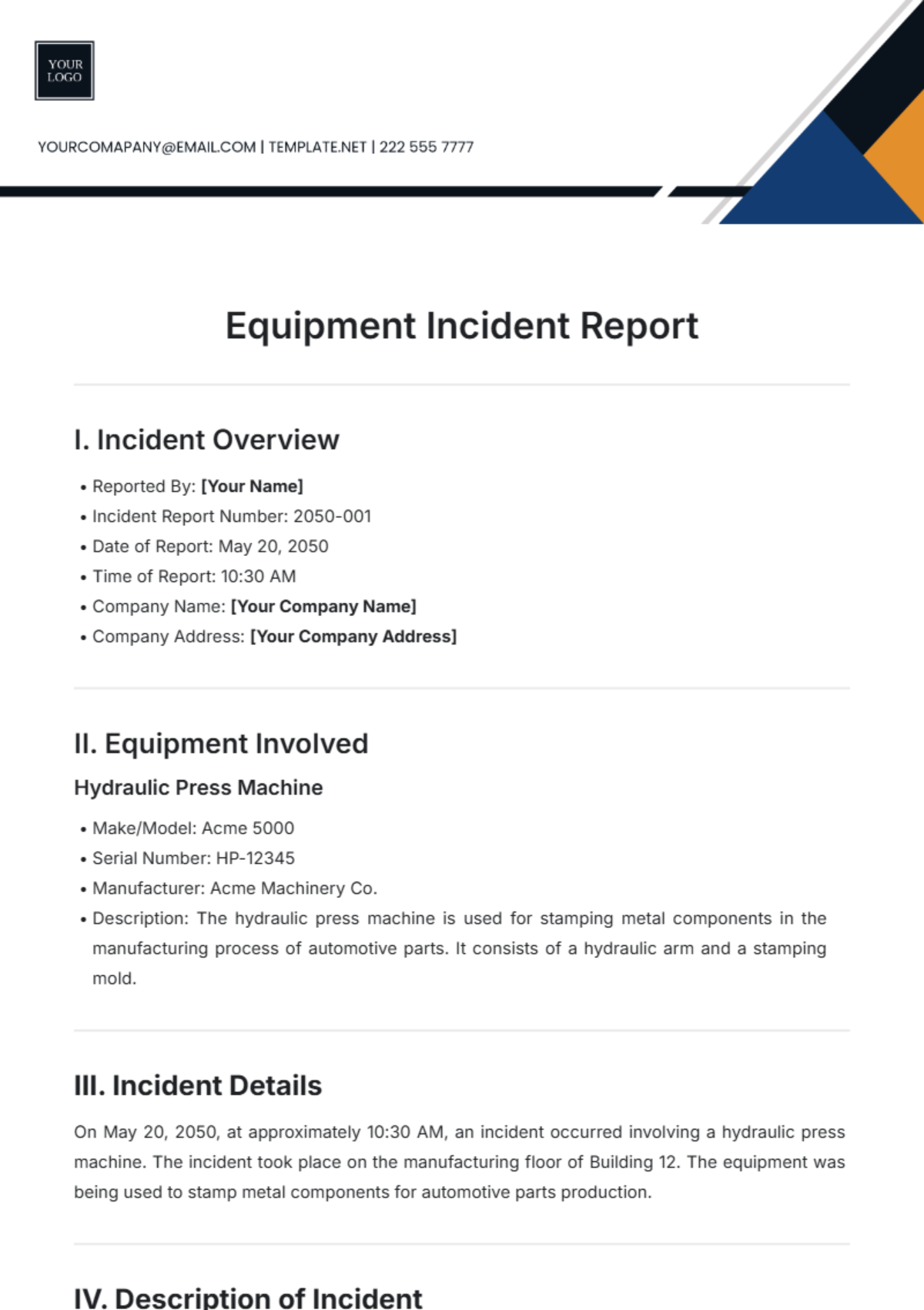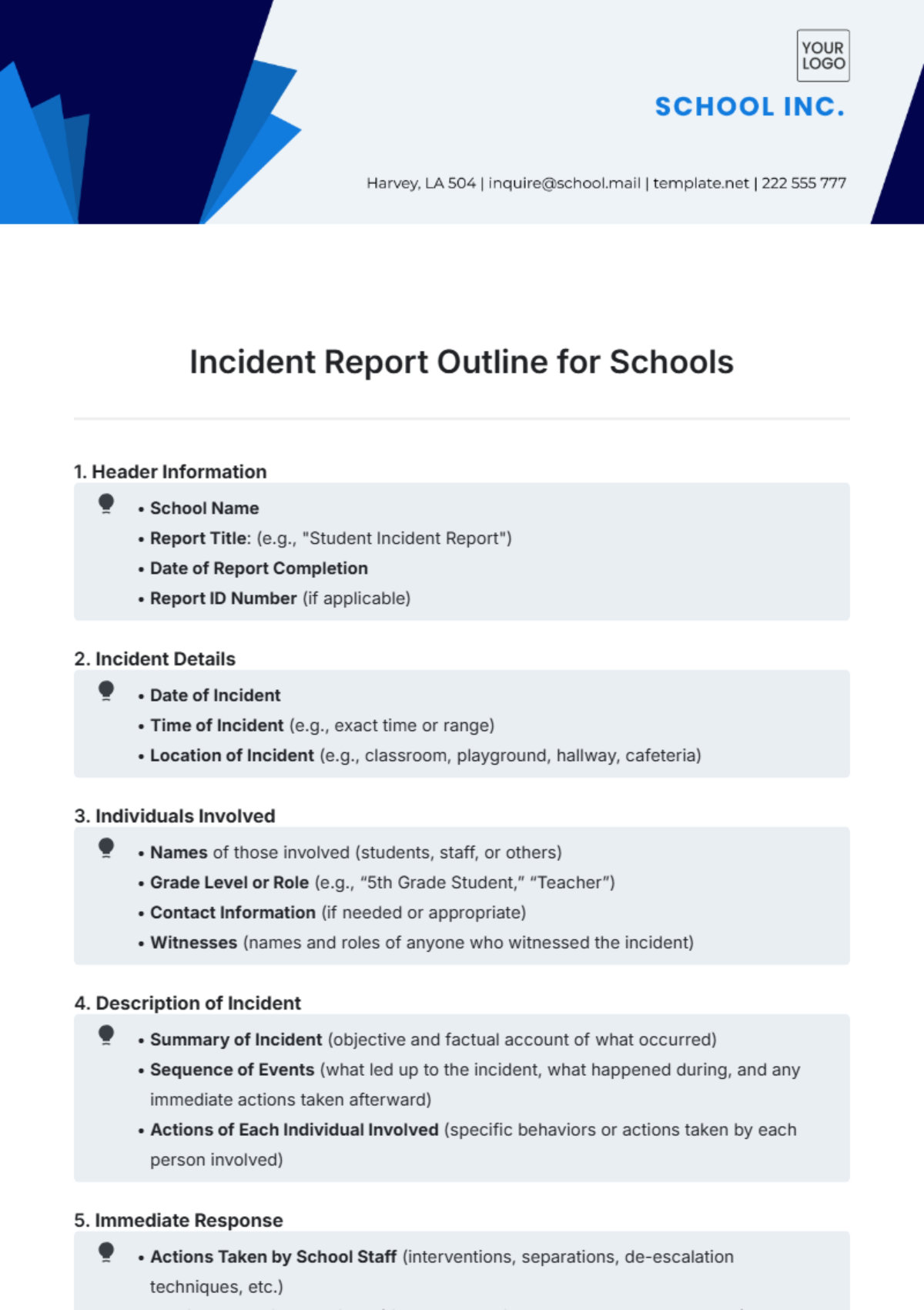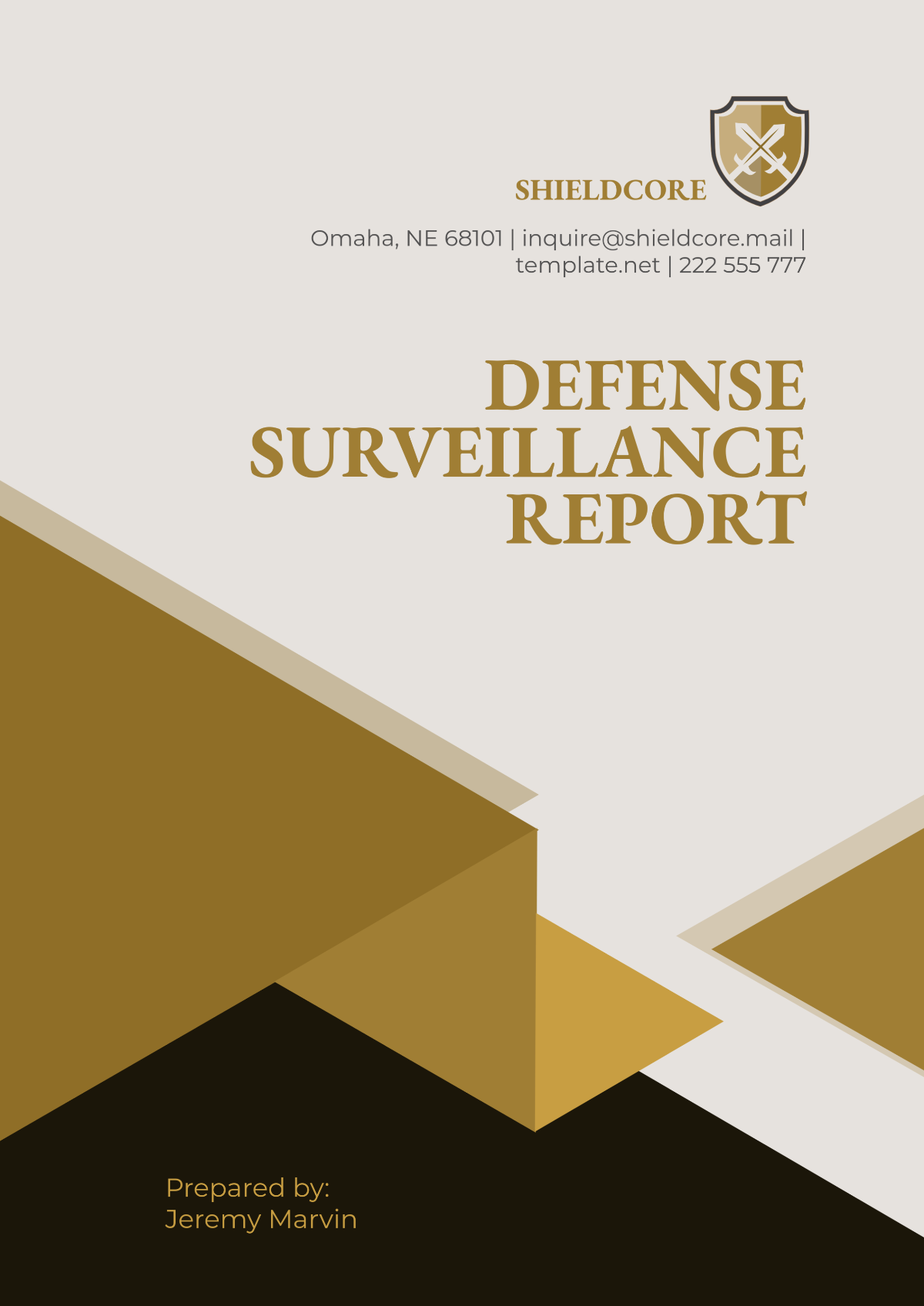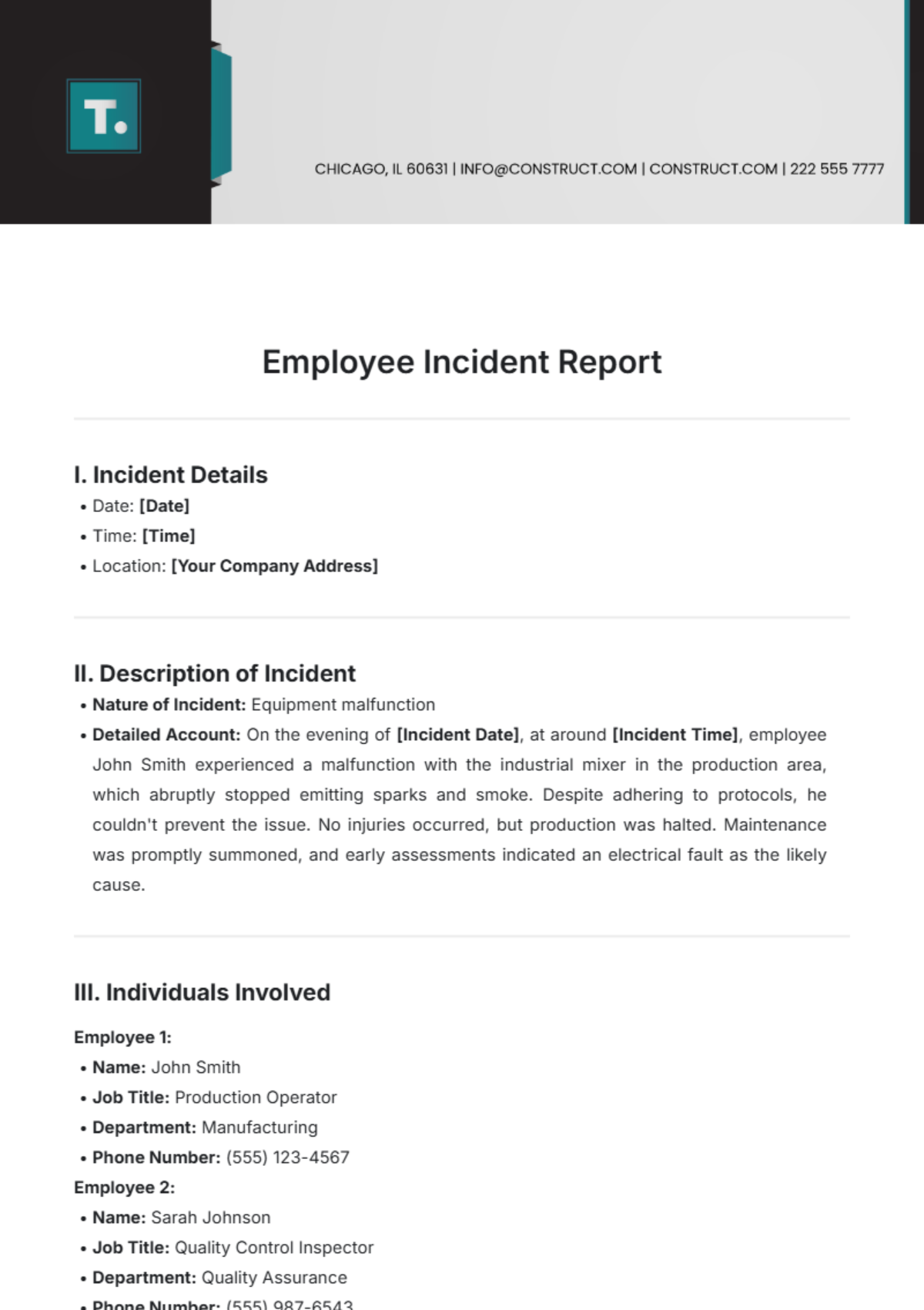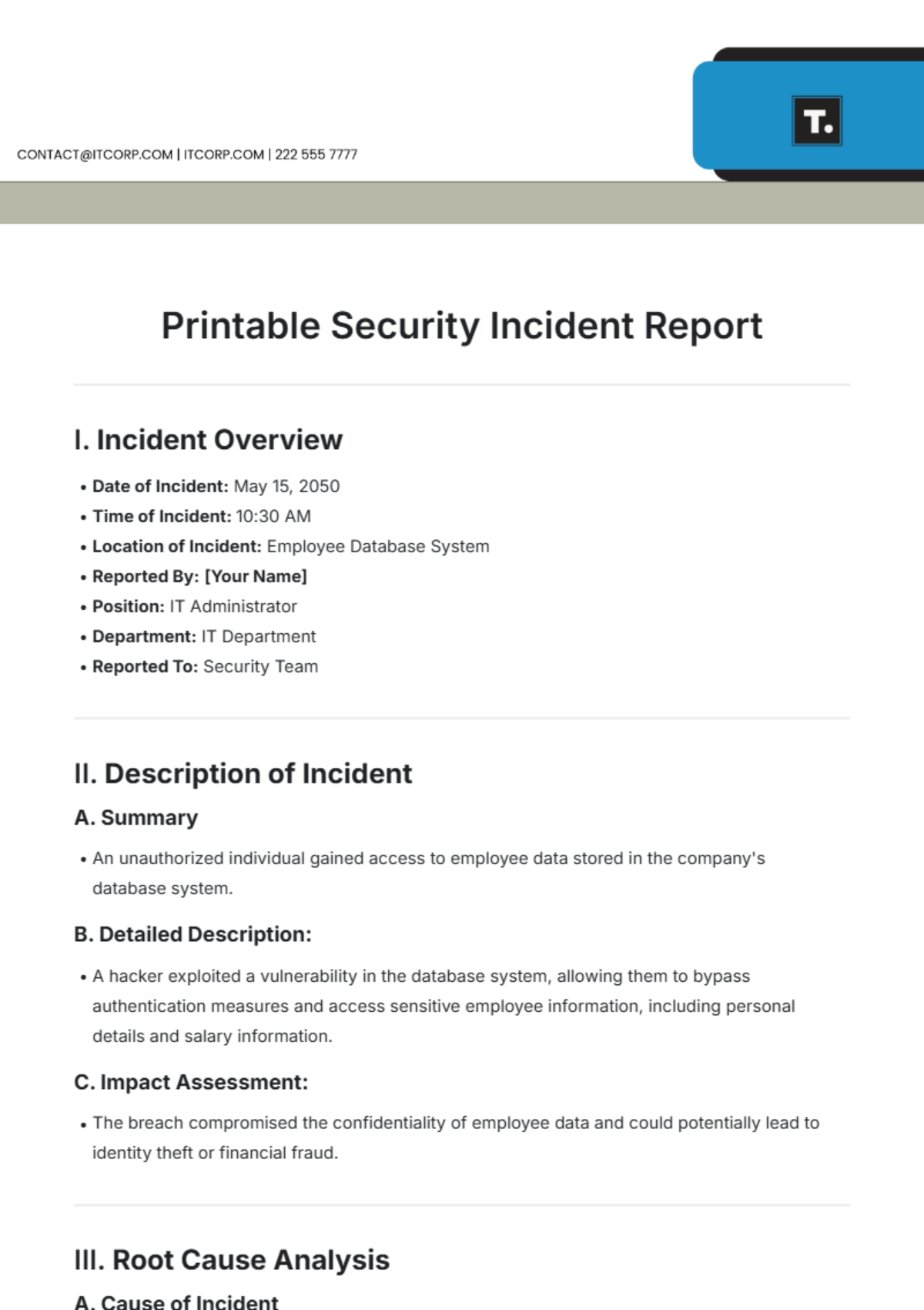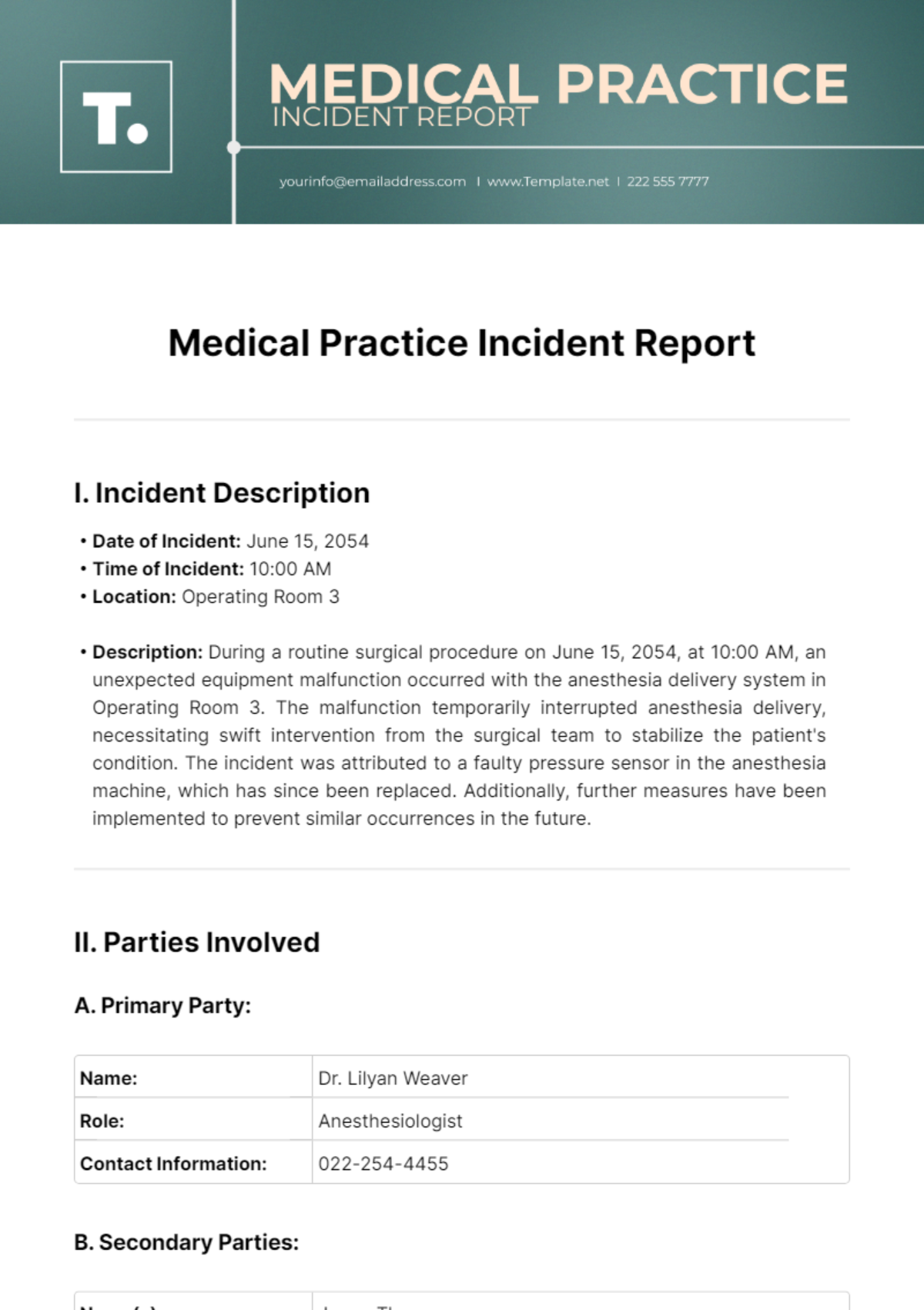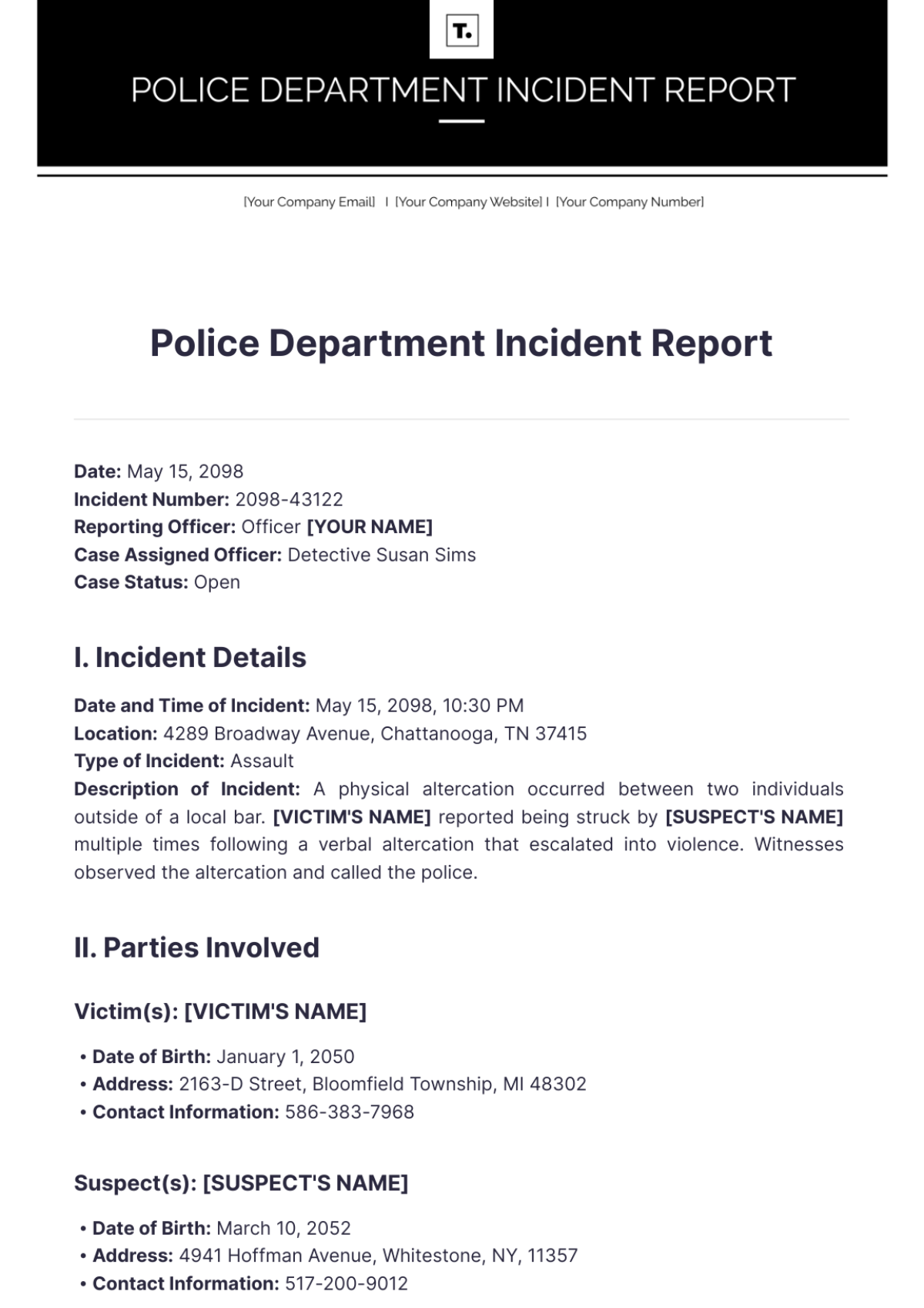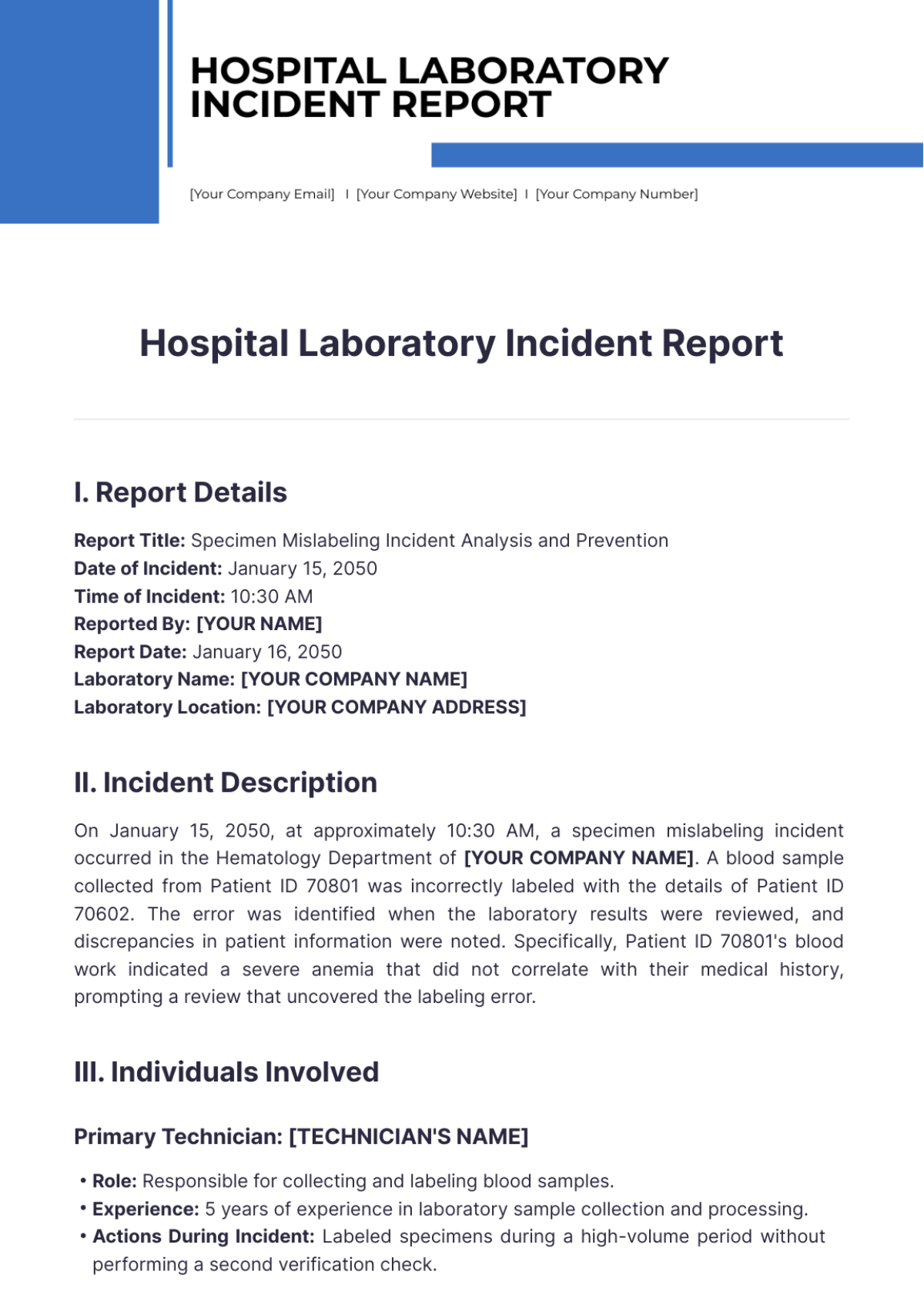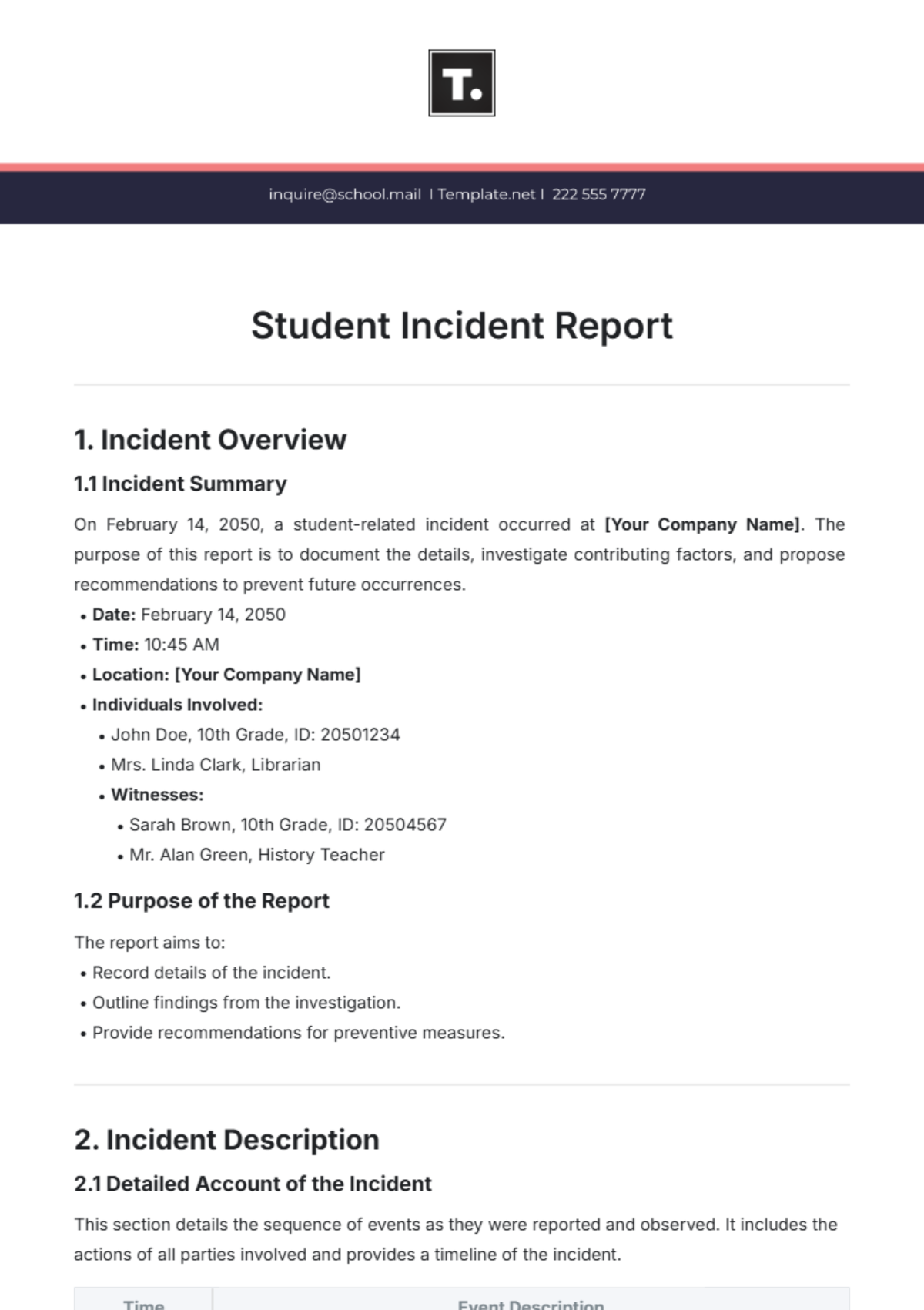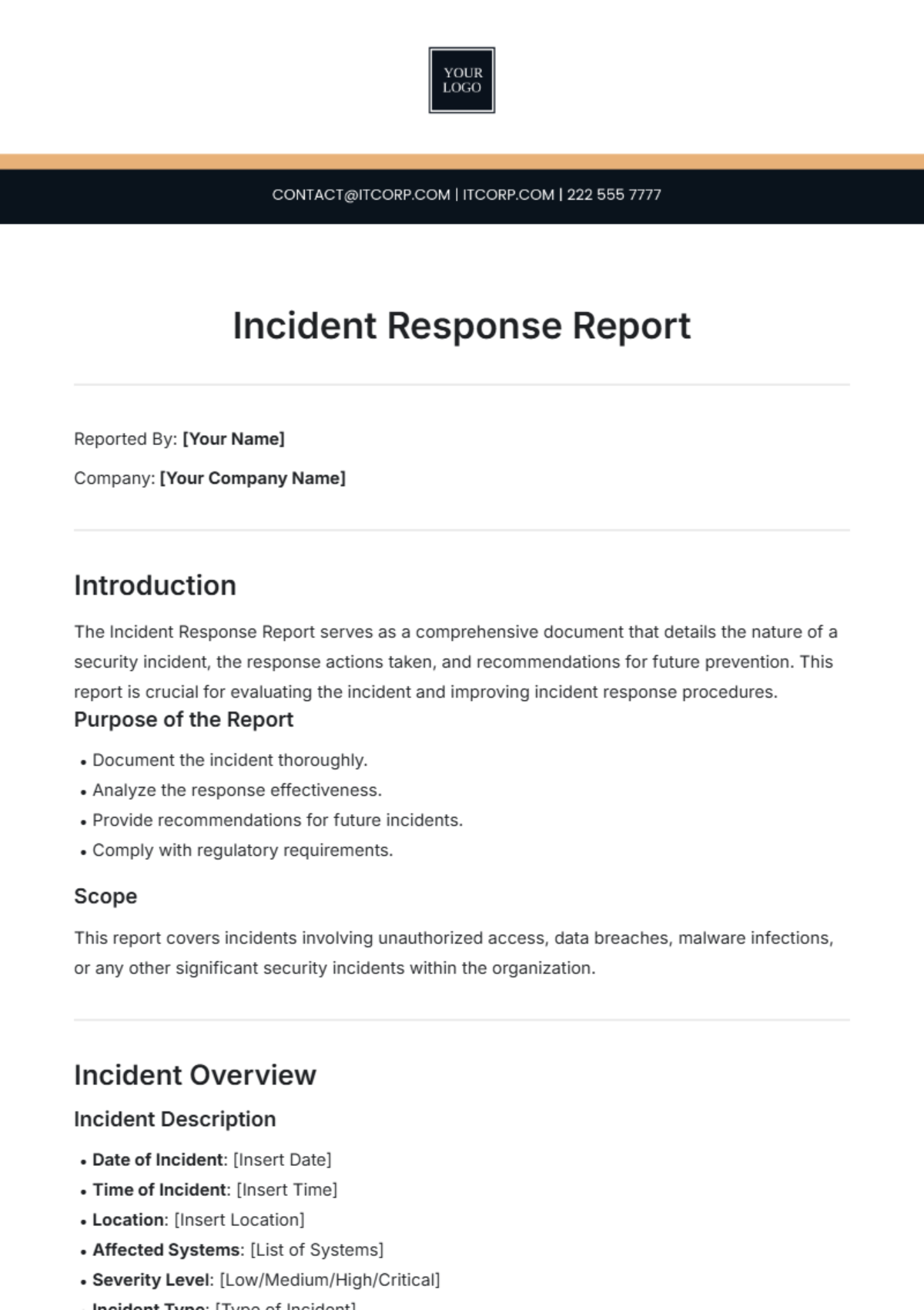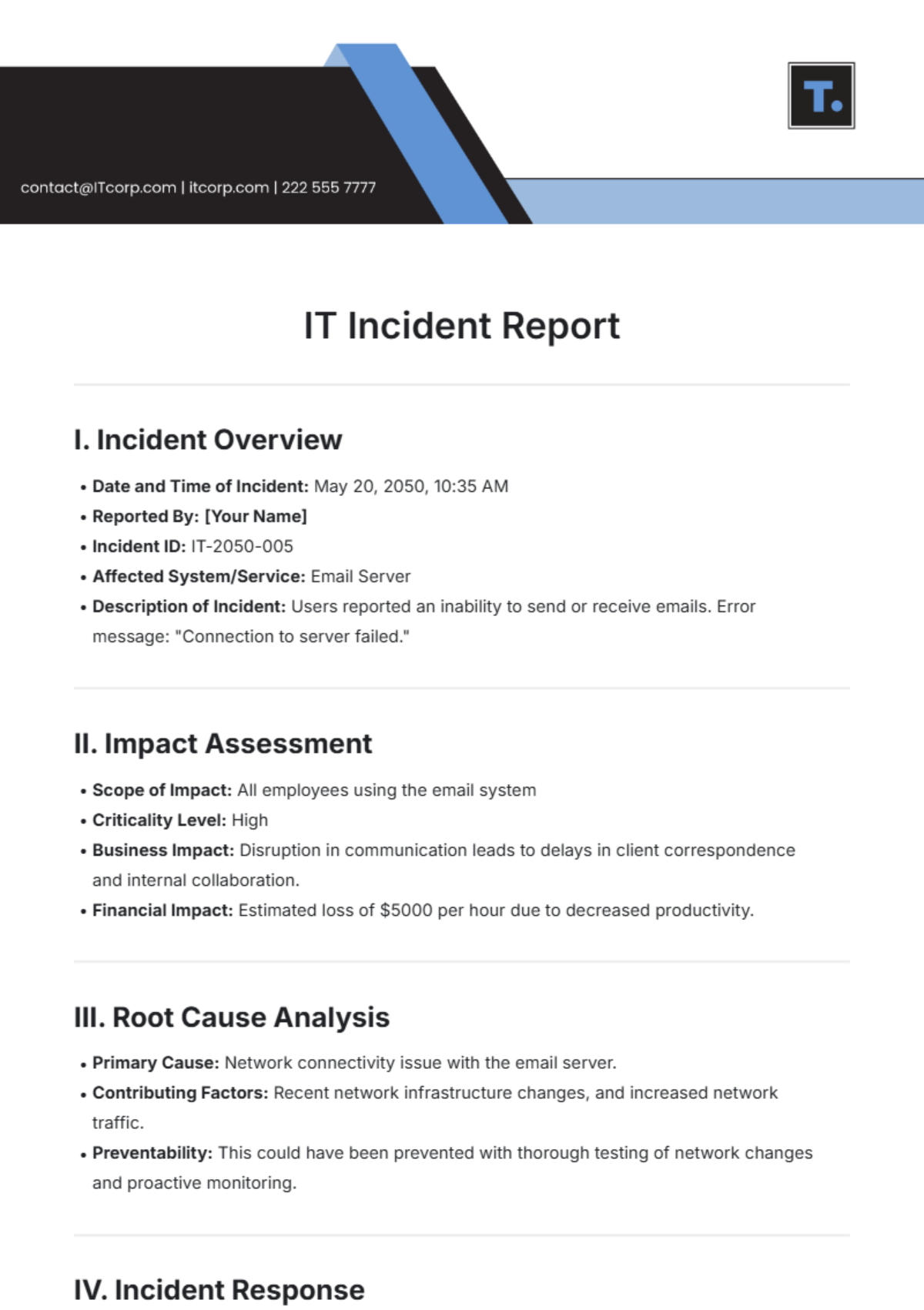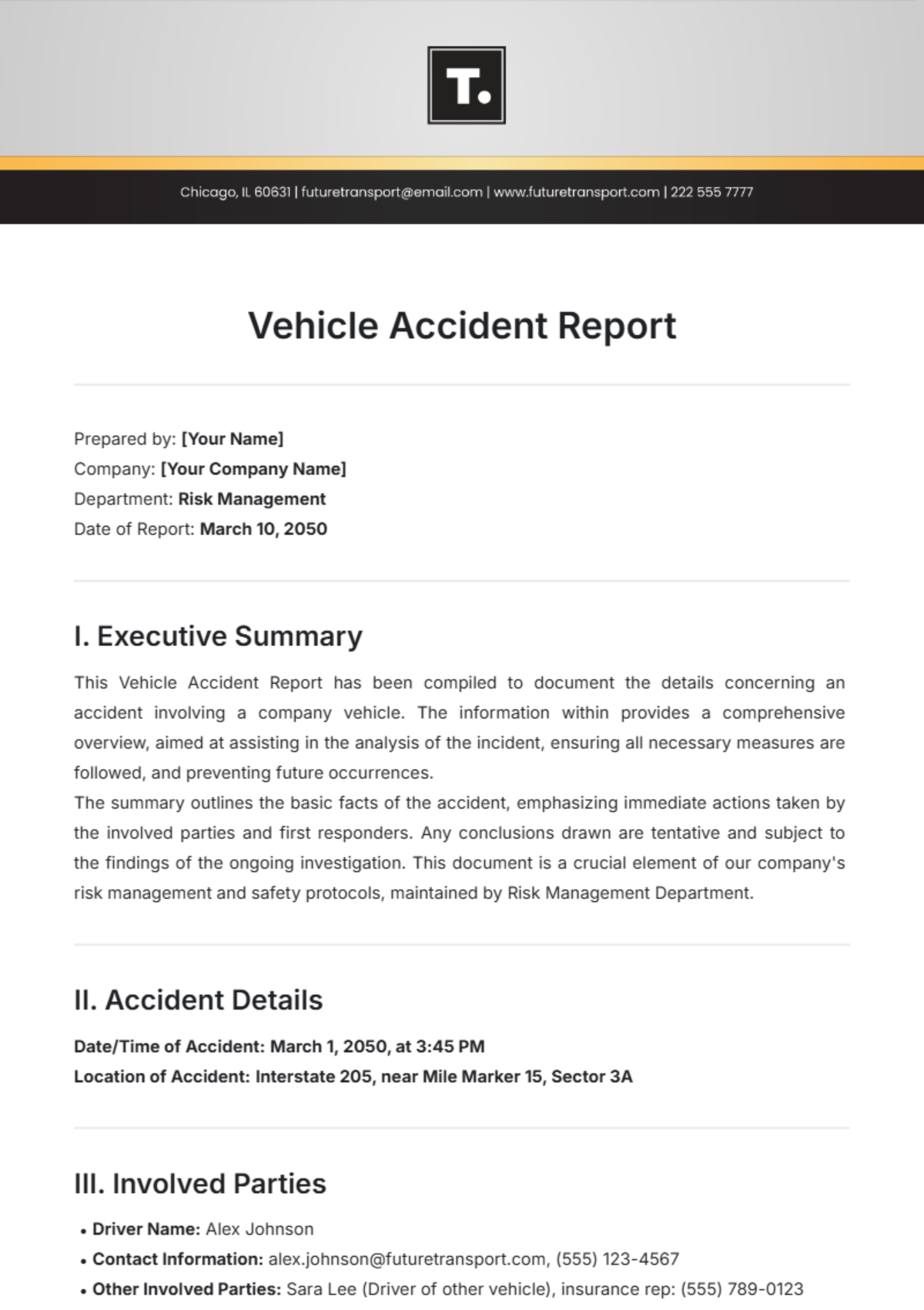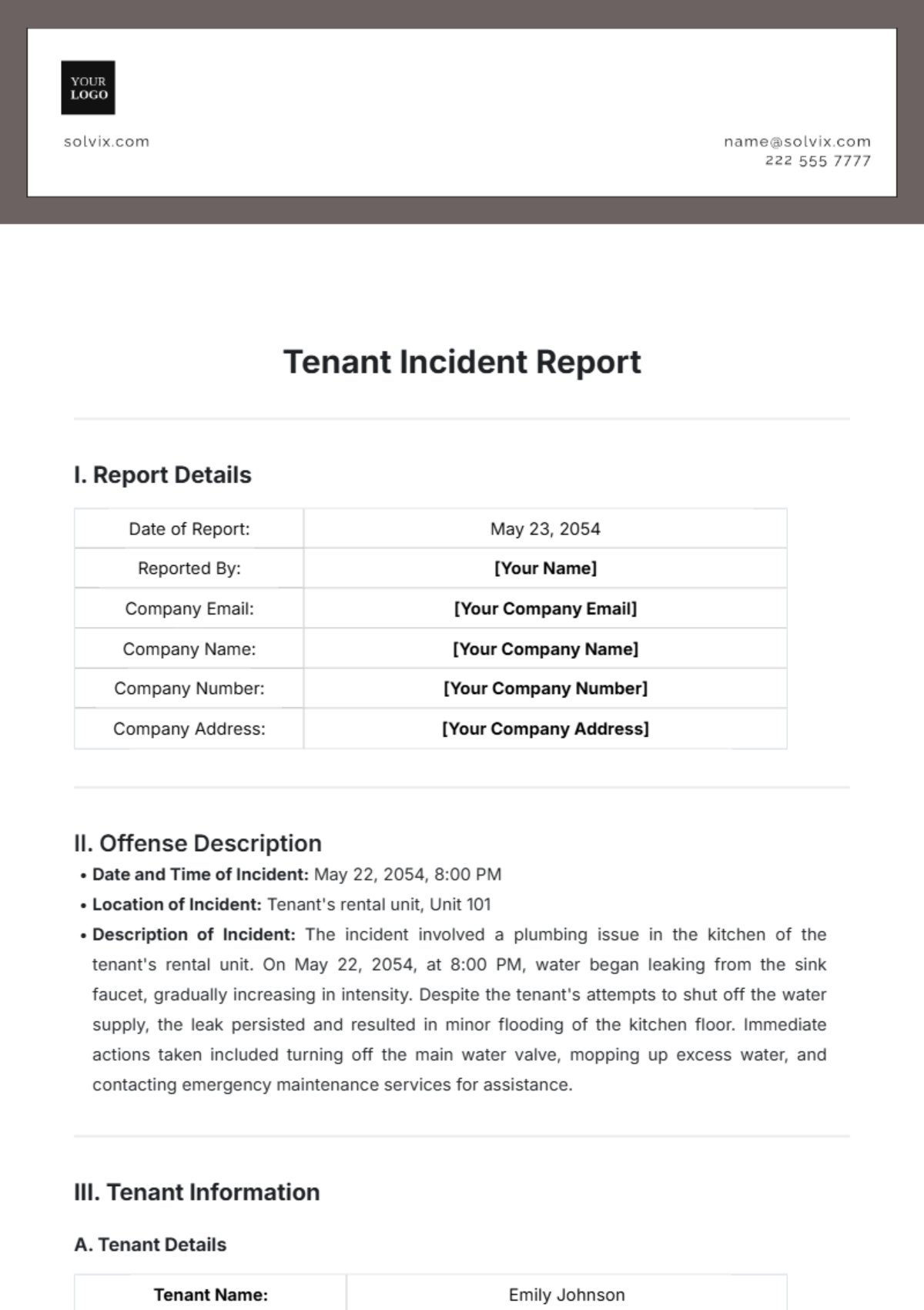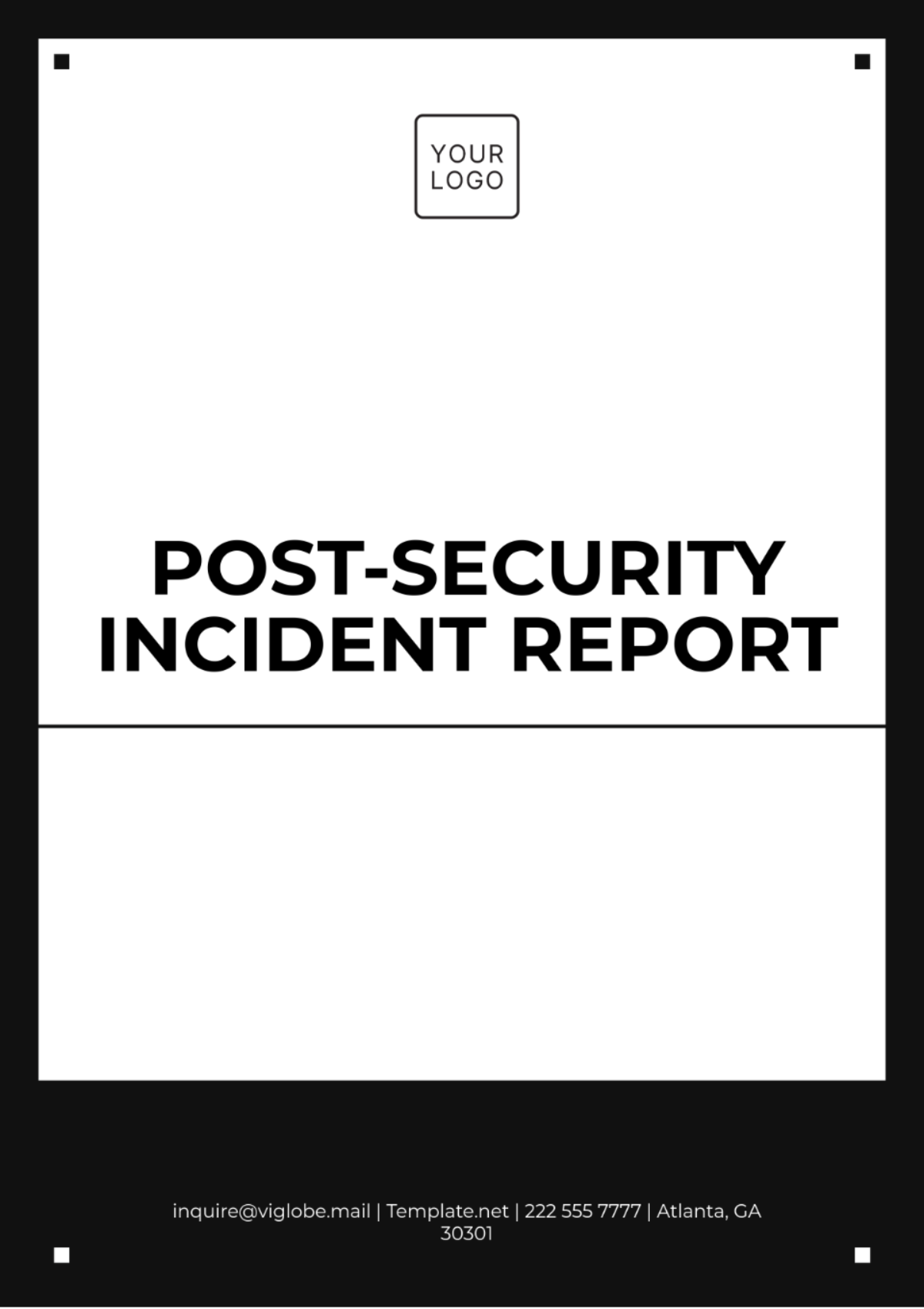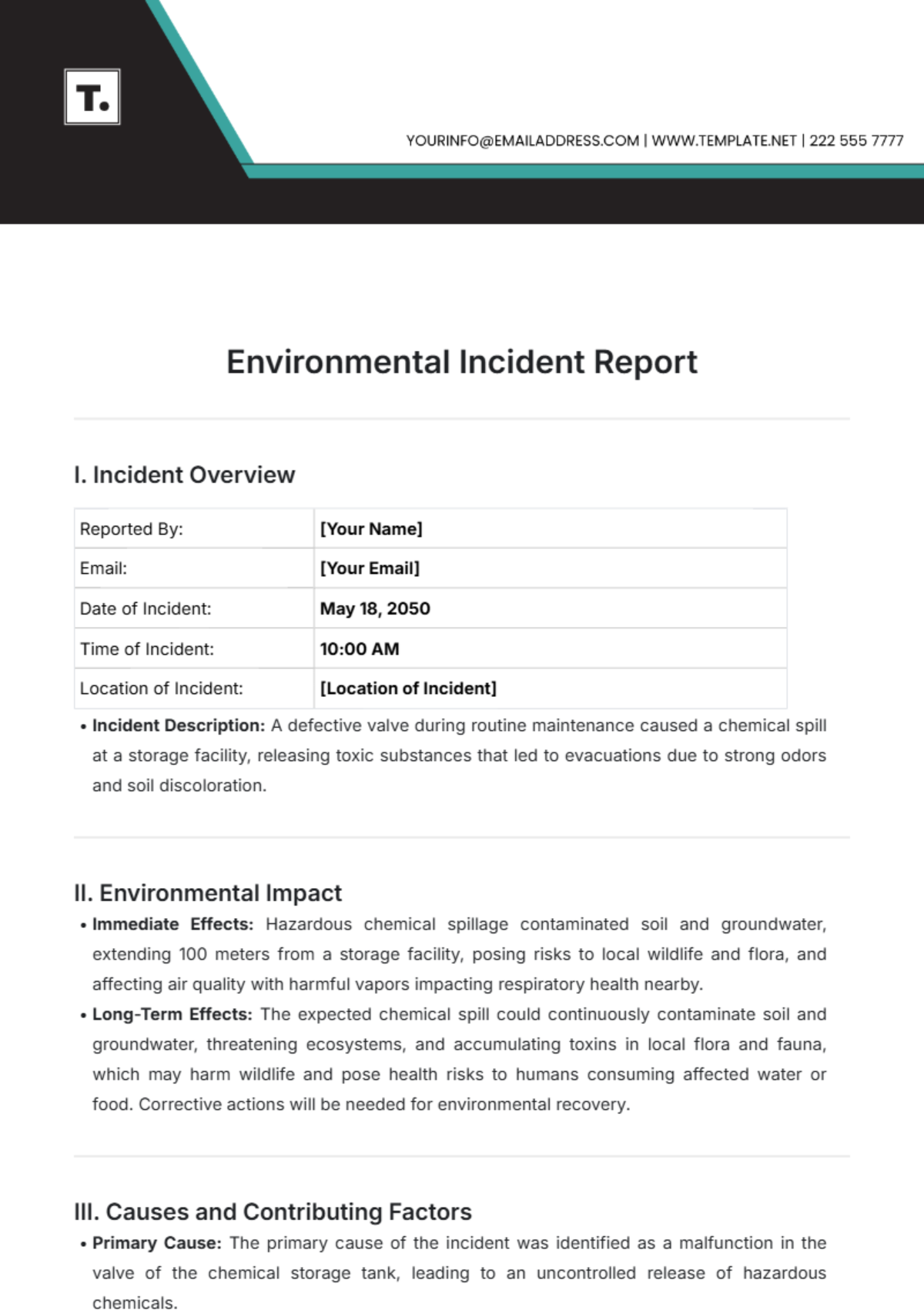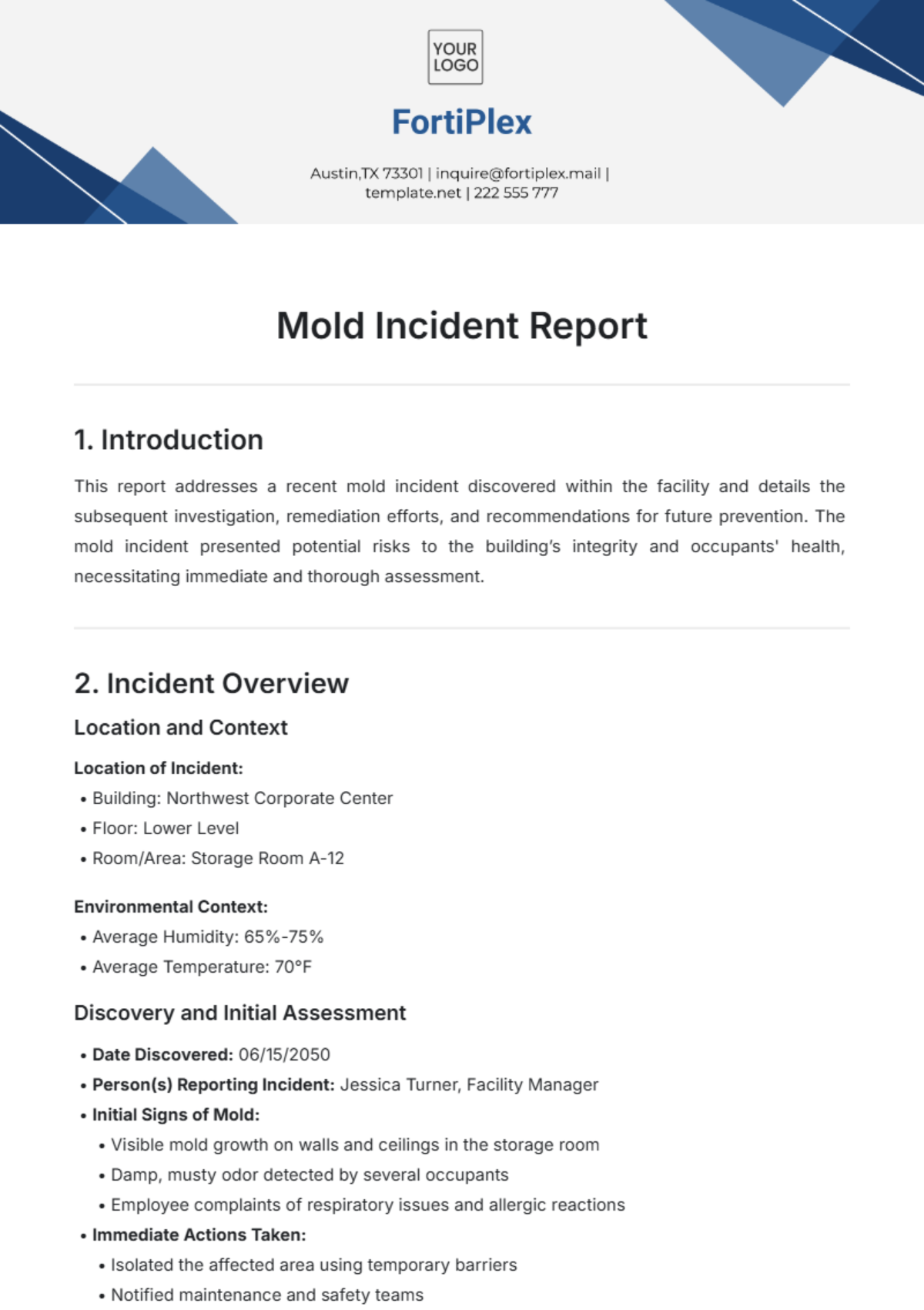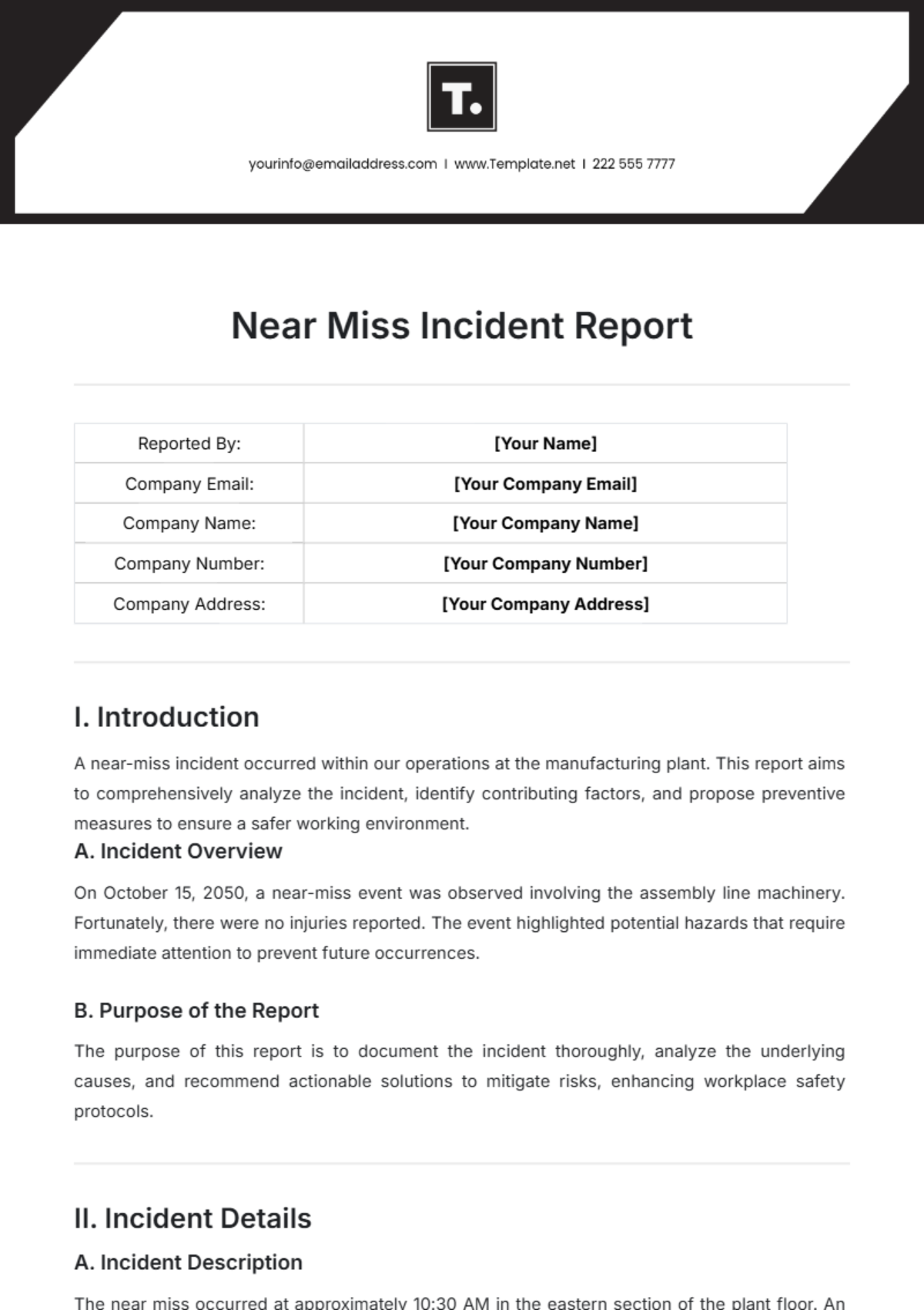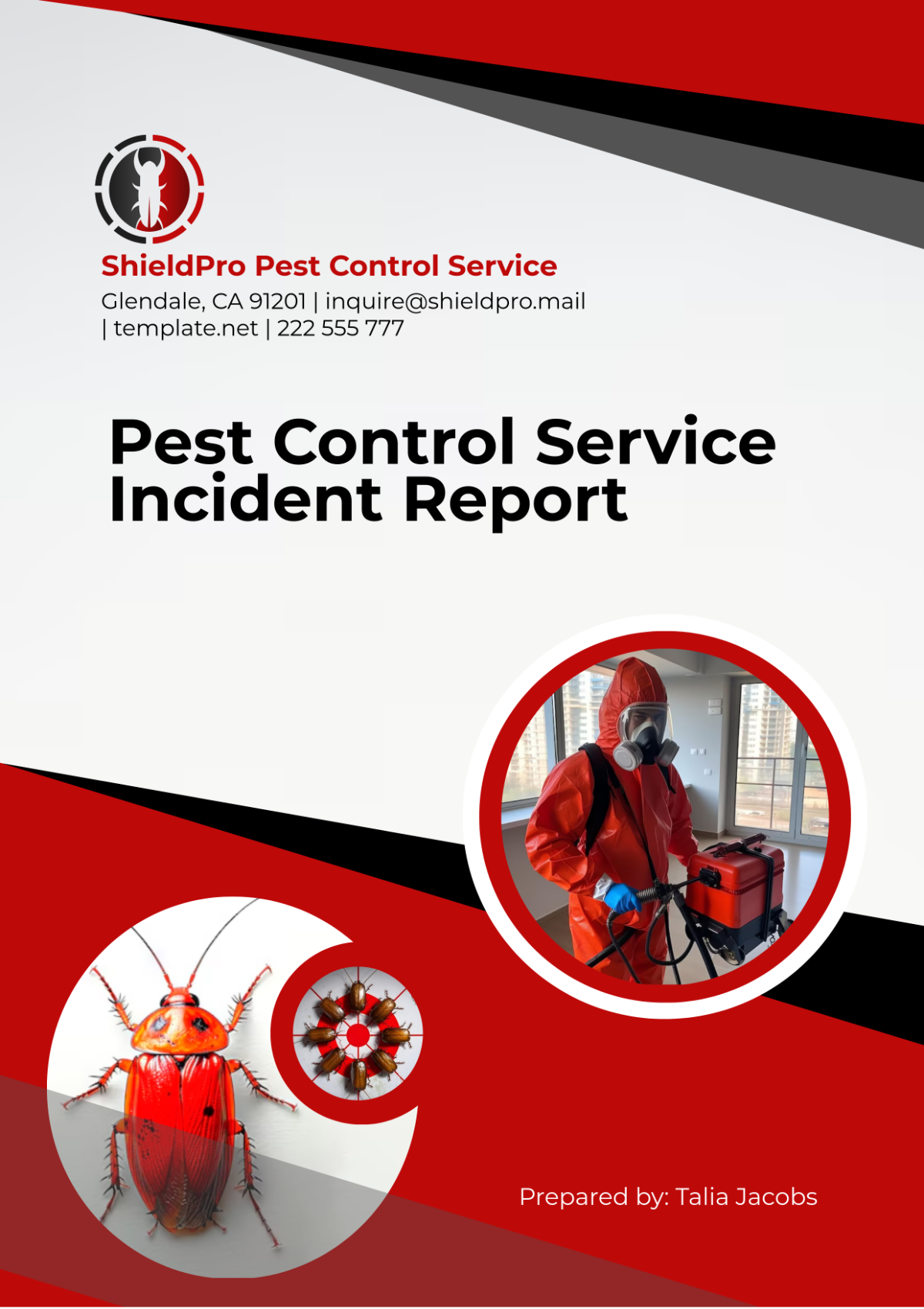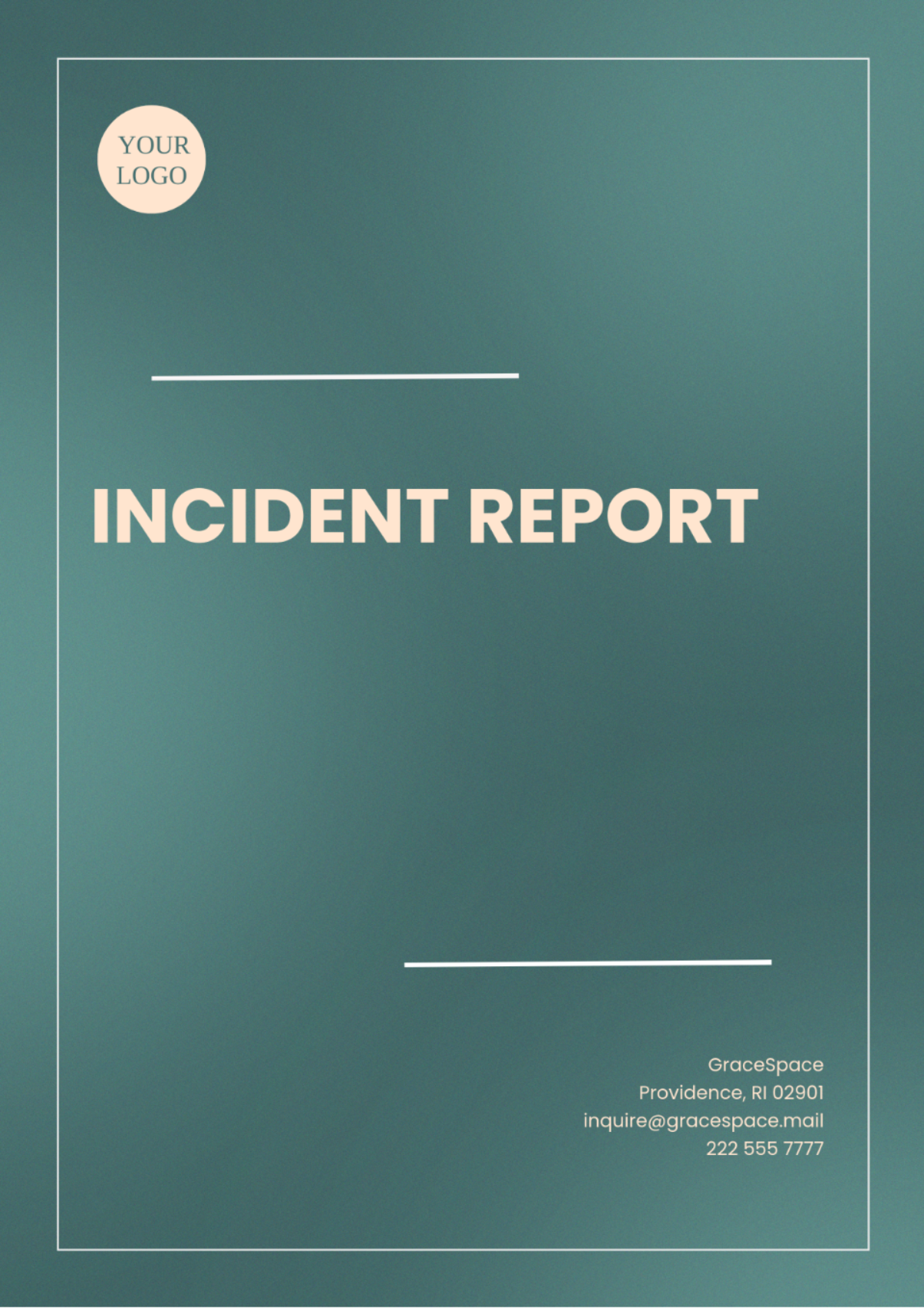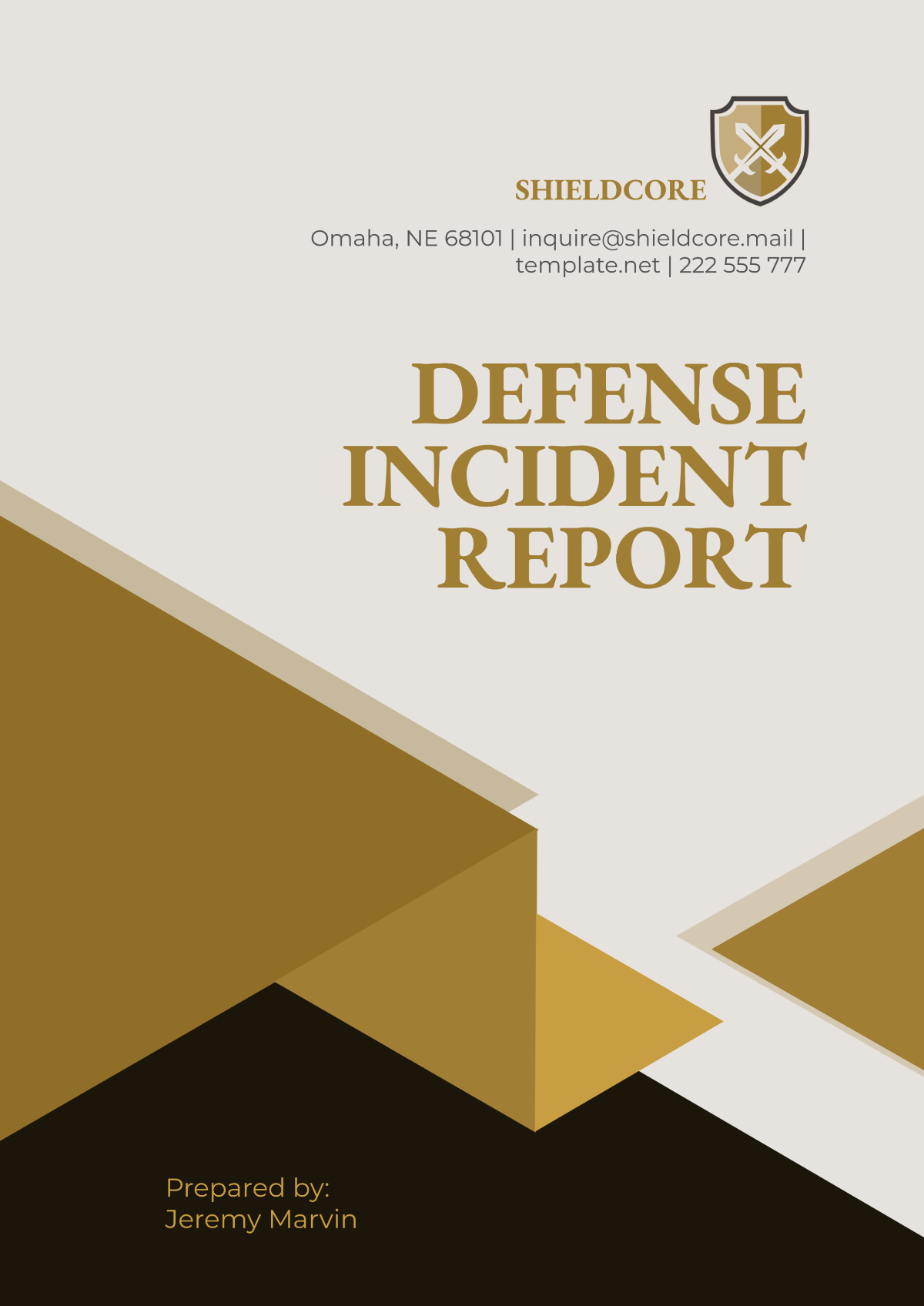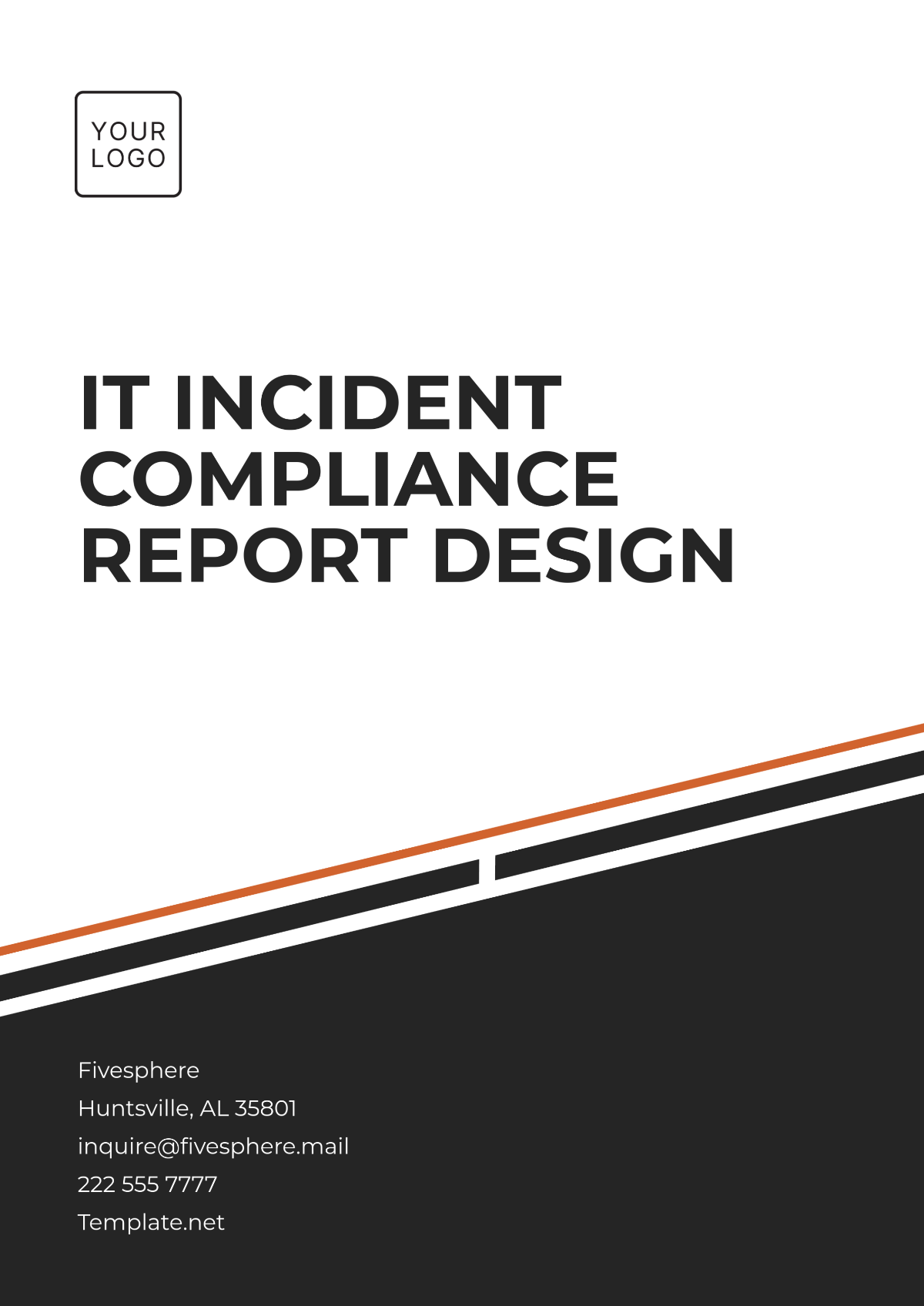Fire Service Report
Prepared by: [YOUR NAME]
Company: [YOUR COMPANY NAME]
Date: January 15, 2051
I. Executive Summary
The purpose of this report is to provide a detailed overview of fire service activities during the period from January 1, 2050, to December 31, 2050. It includes statistical data, incident summaries, and a review of operational effectiveness.
II. Incident Reports
A. Total Incidents
During the reporting period, the fire service responded to a total of 150 incidents. The table below provides a detailed breakdown of the types of incidents handled:
Incident Type | Number of Incidents |
|---|---|
Residential Fires | 45 |
Commercial Fires | 30 |
Vehicle Fires | 20 |
Other Emergencies | 55 |
B. Summary of Major Incidents
The following major incidents occurred during the reporting period:
Residential Fire on Elm Street: A significant residential fire caused extensive damage to two homes. No casualties were reported.
Commercial Fire at Downtown Mall: A fire impacted several shops within the downtown mall. Quick response prevented further damage.
Vehicle Fire on Highway 101: A vehicle fire required lane closures and caused traffic disruptions. The cause of the fire was determined to be mechanical failure.
III. Response Times
A. Average Response Times
The average response times for different types of incidents are detailed below:
Incident Type | Average Response Time |
|---|---|
Residential Fires | 6 minutes |
Commercial Fires | 8 minutes |
Vehicle Fires | 5 minutes |
Other Emergencies | 7 minutes |
B. Response Time Improvement Strategies
To improve response times, the following strategies have been implemented:
Re-deployment of fire stations to strategic locations based on incident data analysis.
Enhanced training programs to improve response efficiency and effectiveness.
Investment in new emergency vehicles equipped with advanced navigation systems.
IV. Training and Development
A. Training Programs
A variety of training programs were conducted during the reporting period:
Firefighting Techniques and Safety
Emergency Medical Response
Hazardous Materials Handling
B. Employee Development
To ensure continuous improvement, several development programs were offered to employees:
Leadership and Management Training
Technical Skills Workshops
Peer-to-Peer Learning Sessions
V. Equipment and Maintenance
A. New Equipment Acquisitions
The following new equipment was acquired during the reporting period:
Equipment Name | Quantity |
|---|---|
Fire Engines | 3 |
Rescue Tools | 10 |
Protective Gear Sets | 50 |
B. Maintenance Activities
Regular maintenance activities were conducted to ensure the readiness of all equipment:
Monthly inspections of fire engines and rescue tools.
Regular servicing of breathing apparatus and protective gear.
Scheduled updates and testing of communication equipment.
VI. Conclusion
The fire service has demonstrated a high level of effectiveness and efficiency in handling incidents during the reporting period. Continuous efforts in training, development, and equipment maintenance are essential to maintain and improve service delivery.
Future reports will provide further insights into additional areas of improvement and strategic initiatives undertaken by the fire service.
